Introduction
This Earth Day, we publish our second Annual Environmental Sustainability Review.
In this review, we share the progress made this year and the challenges we’ve met when attempting to address the causes and impacts of climate change. We also highlight the operational work of the cultural and creative sector and celebrate the funded artists, organisations and projects that have delivered on the themes in our Environmental Sustainability Funding Criteria.
While progress is being made on our organisational pathway to net zero through internal change such as the creation of a new travel policy and prohibiting UK mainland flights, we are also focusing on the need to adapt our systems and behaviours to tackle the causes and consequences of climate breakdown. Internal changes range from the creation of a dedicated climate risk register, focusing on the climate risks that will impact our organisation, staff and those we fund, to the way we share information such as this review on our website.
Adaptation is a process that leads to resilience - but we can’t achieve that on our own. We need to work collegiately and in partnership with the creative and cultural sector to achieve the aspirations of the Climate Change (Scotland) Act. For example, as the environmental sustainability ambitions of the Multi-Year Funding Portfolio are realised over the coming years, we should all be able to learn from each other and ensure we keep focussed on the transformational change necessary towards a more sustainable future.
Iain Munro, CEO, Creative Scotland
Climate Emergency and Sustainability Plan Progress
In 2021 we refreshed the Strategic Framework that guides our work to include an Environmental Sustainability Priority as a commitment to reduce the impact of our work and those we support on the planet.
Between April 2021 and March 2022, a project team led by Culture for Climate Scotland (previously Creative Carbon Scotland) and Adaptation Scotland co-designed an evidence-based plan with multiple stakeholders including people in the cultural and creative sectors alongside the Creative Scotland Board and staff.
Our Climate Emergency and Sustainability Plan was published in April 2022 and sets out not only Creative Scotland’s aspiration to achieve net zero, but also how we define our organisation’s role in supporting the culture and creative sectors to achieve their own climate ambitions.
Each year we will continue to share an update on the 60+ actions, noting which are to be started, in progress or complete. We will also be adding actions as they arise as new and emerging climate issues influence our work.
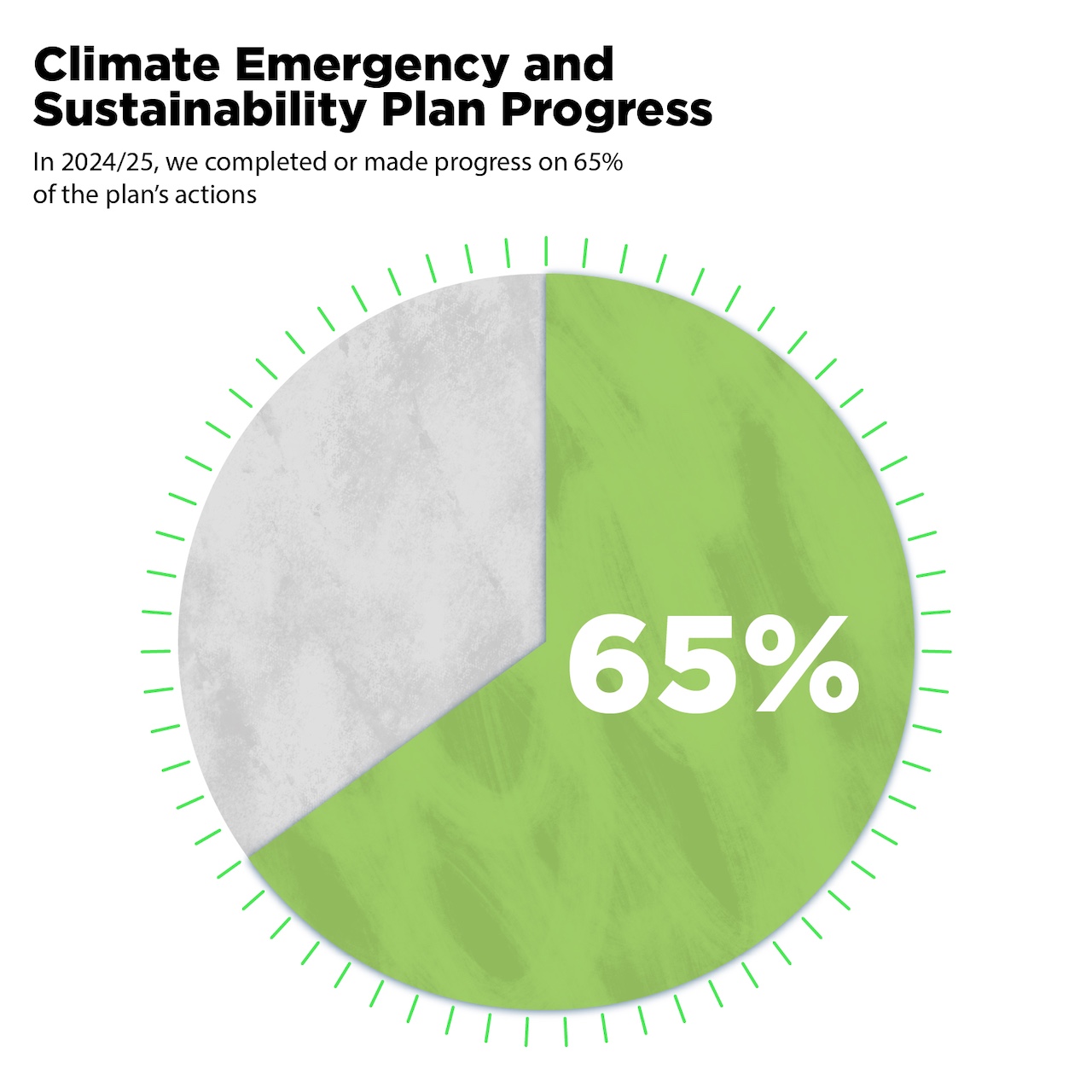
In 2024/25, we completed or made progress on 65% of the plan’s actions. However, we do recognise that while we see an increase in the actions being progressed, only 48% of the actions are currently on track. The appointment of our Climate Emergency and Sustainability Lead, rather than a Climate Change Team in 2023 (Action 1.4) has impacted timescales in the short, rather than long term as we continue to be committed to delivering change with our organisation and sector.
While collective action was impacted by the need to deliver Multi-Year Funding, changes have been made to the way in which the actions are embedded within our annual planning from 2025/26. This change should result in an expansion of the delivery of the actions across the organisation and an increase in completion rates ahead throughout the year.
Performance Against Actions
Download a full breakdown of the progress made against the Climate Emergency and Sustainability Plan to date.
Climate Emergency and Sustainability Plan Review Table 2024-25 (.xls)
Creative Scotland Emissions Reporting 2023/24
Since 2015/16 all public bodies have been required to annually report on their corporate emissions to comply with the Public Bodies Climate Change Duties (PBCCD) established under the Climate Change (Scotland) Act 2009.
Each November, Creative Scotland submits data from the previous financial year outlining our corporate emissions, targets and project data. In recent years this has been expanded to include developments focused on adaptation, procurement and influence.
Our Climate Emergency and Sustainability Plan stipulates that we share our progress with not only the Scottish Government, but the sector and wider public. The following details outline our emissions and some of the opportunities and challenges we have faced when attempting to reduce our emissions in 2023/24.
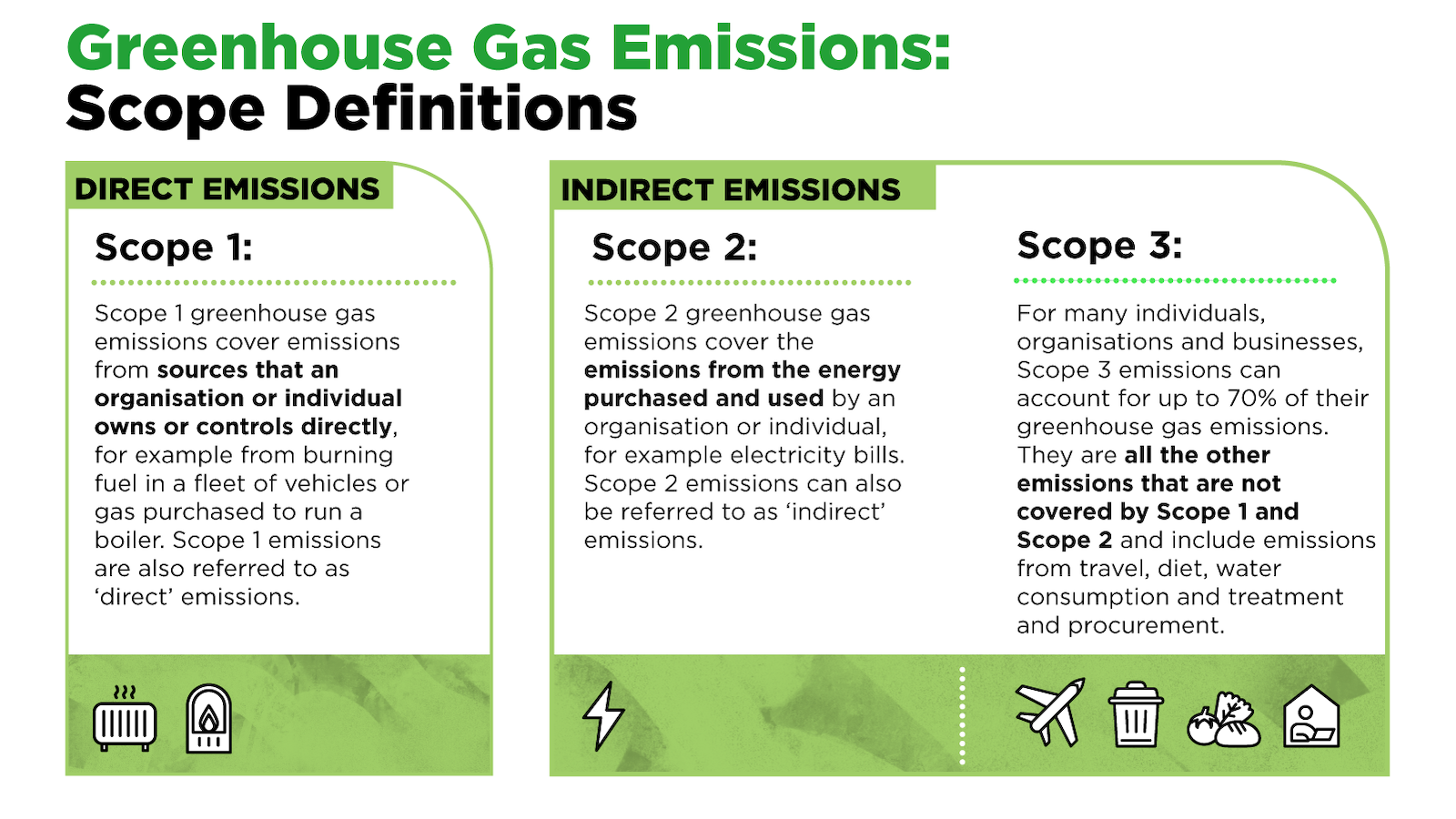
Mitigation 2023/24
In 2023/24, our total reported emissions were 201tCO2e, a reduction on 2022/23. We also expanded our emissions boundary to include commuting data, which was obtained via a staff survey. While we had a high return rate for the staff survey (70%+) the data is not perfect, but it has enabled us to not only include commuting data, but more detailed data on the emissions from staff working from home.
It is worth noting however, that when the working from home and commuting data are removed from the total and we compare core emissions from 2022/23 to 2023/24, we see an increase of 12.1tCo2e. Approximately a quarter of this increase is attributed to an increase in electricity consumption in our rented office space in Edinburgh (3.76tCO2e), the remainder from our business travel. While we have seen an increase in the use of some modes of transport, we have also been collecting data on additional modes of transport such as international rail, buses, taxis, ferries, trams and the underground.
A result of the Climate Emergency and Sustainability Plan and the increased collective understanding of the impact of our business travel has been the amendment to organisational policy on the use of mainland UK flights, which have been prohibited from 1 April 2024.
In January 2024 we relocated from a dedicated office space within The Lighthouse, Glasgow to several desks within the Registers of Scotland Office at St Vincent Plaza, Glasgow. Emissions data has not been included for this space within our emissions reporting to avoid double counting.
tCO2e = metric tonnes (t) carbon dioxide (CO2) equivalent (e)
Organisational Emissions 2023/24
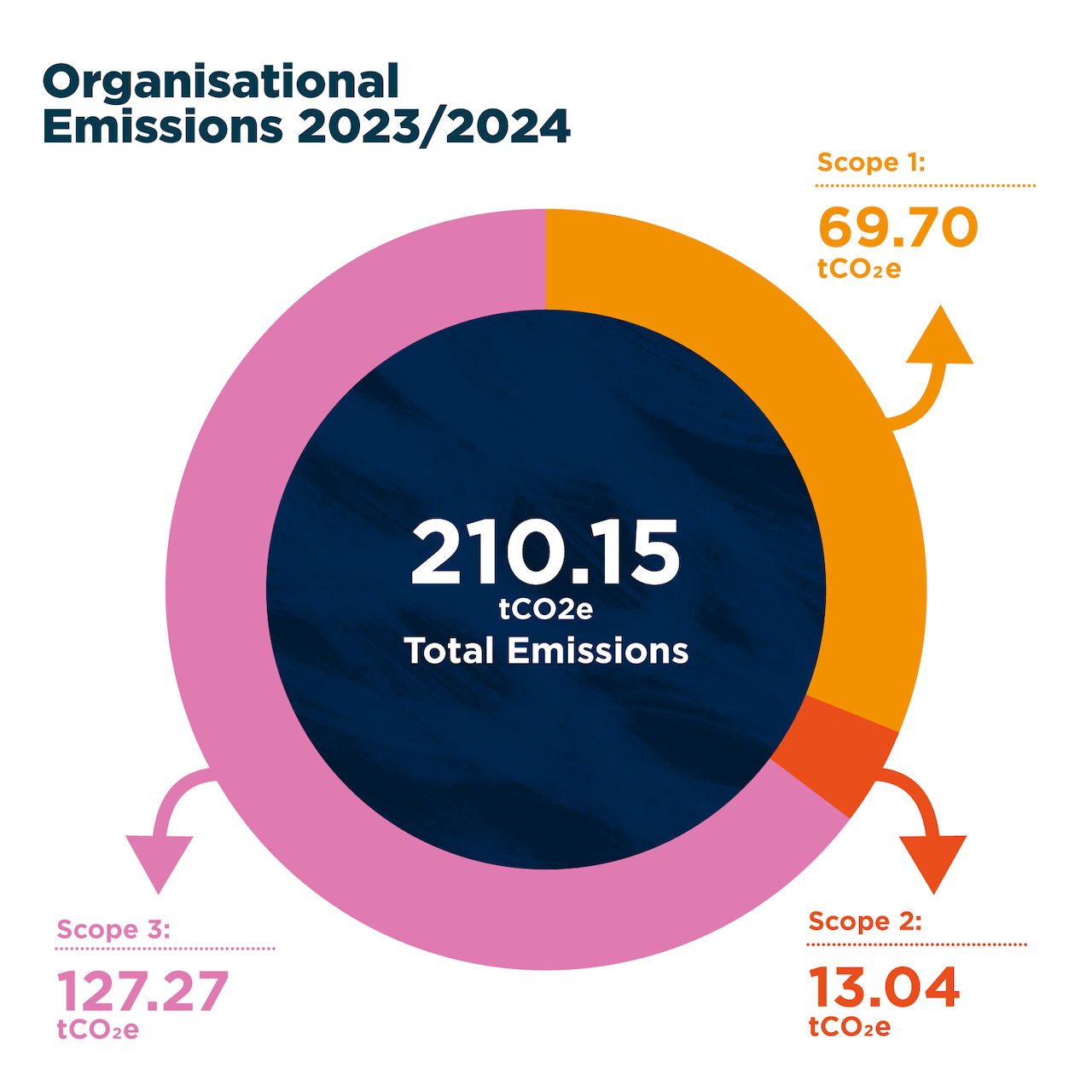
Our reported organisational emissions in 2023/24 are 210.15tCO2e
|
Scope 1 Direct Emissions
|
69.70tCO2e (33.16%)
|
|
Scope 2 Indirect Emissions
|
13.04tCO2e (6.21%)
|
|
Scope 3 Indirect Emissions
|
127.27tCO2e (60.63%)
|
2023/24 Inclusions
Scope 1 Direct Emissions
- Mains gas consumption estimate for Waverley Gate, Edinburgh and The Lighthouse, Glasgow using the Culture for Climate Scotland tenant energy toolbox
Scope 2 Indirect Emissions
Scope 3 Indirect Emissions
-
Additions for 2023/24: Taxi, International Rail, Buses/Coach, Underground, Trams, Commuting Data
2023/24 Omissions
Scope 1 Direct Emissions
Scope 2 Indirect Emissions
Scope 3 Indirect Emissions

Scope 3 emissions breakdown (% of total emissions)
|
Electricity Transmission & Distribution
|
1.13CO2e (0.89%)
|
|
Water Supply
|
0.02tCO2e (0.01%)
|
|
Business Travel
|
60.13tCO2e (47.25%)
|
|
Homeworking
|
48.32tCO2e (37.97%)
|
|
Overnight Stays
|
4.86tCO2e (3.82%)
|
|
Commuting
|
12.81tCO2e (10.06%)
|
Business Travel Breakdown (% of total emissions)
|
Car mileage
|
6.68tCO2e (11.11%)
|
|
Domestic Flights
|
6.79tCO2e (11.29%)
|
|
International Flights
|
17.95tCO2e (29.85%)
|
|
Long Haul Flights
|
0.54tCo2e (0.90%)
|
|
Short Haul Flights
|
19.37tCO2e (32.21%)
|
|
National Rail Travel
|
8.63tCO2e (14.35%)
|
|
International Rail Travel
|
0.02tCO2e (0.03%)
|
|
Bus, Coach, Tram, Underground
|
0.05tCO2e (0.08%)
|
|
Taxis
|
0.10tCO2e (0.17%)
|
|
Ferry
|
0.004tCO2e (0.01%)
|
Annual Reported Emissions
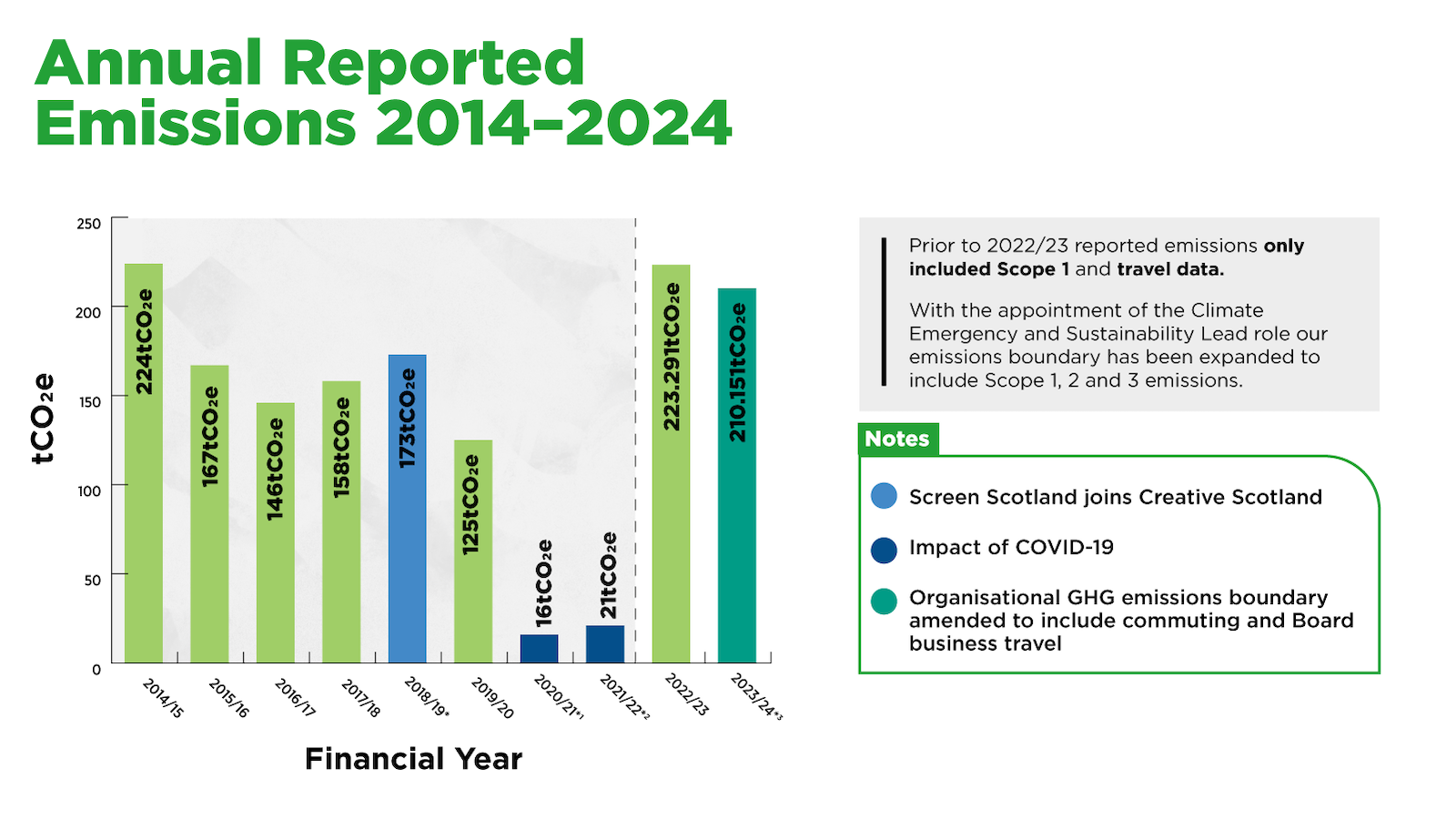
Adaptation
Our adaptation work in 2023/24 included:
-
Strategic Priorities: Our priorities, which include Environmental Sustainability, were central to the development of our new Multi-Year Funding Programme. The Environmental Sustainability Funding Criteria was developed to include several themes, including adaptation. Applicants were required to outline the actions they will undertake to adapt to the impacts of climate change.
-
Culture for Climate Scotland (CCS): Continued delivering their work in supporting the sector to address their environmental impacts. During 2023/24, they offered targeted training and resources focusing on adaptation to support organisations to respond to the funding requirements of Multi-Year Funding. The impact of this support for the fund is evident in the number of adaptation plans submitted with the Annual Environmental Reporting for 2023/24.
RFO Emissions Reporting 2023/24
Since 2011, Creative Scotland has been encouraging – and from 2015 requiring – recipients of Regular Funding to report annually on their Greenhouse Gas Emissions (GHG) and develop strategies to reduce them. Over the past decade Culture for Climate Scotland (CCS) has supported the sector’s reporting work and provided feedback to both the reporting organisations and Creative Scotland. We pass the findings to the Scottish Government via the Public Bodies Climate Change Reporting Duty and use them to shape CCS’s subsequent year’s support for the sector.
In 2023/24, 119 organisations reported emissions data, carbon management and adaptation plans.
Total RFO emissions (energy, water, travel and waste) were 8,947tCO2e, which is a 12% increase on reported emissions from 2022/23. Whilst emissions from energy and waste decreased, travel emissions increased 47%, which can be attributed to a notable increase in plane travel across the sector. Detailed findings can be found in the full report on CCS’s website.
2024/2025 Funded Projects
Transformational action on climate change requires cultural change throughout society.
Creative Scotland’s role is not only to facilitate carbon emissions reporting and climate change mitigation by the culture and creative sectors, but to encourage the sectors to play an essential role in the transformational change that Scotland requires.
We are committed to use our work and influence to increase public engagement with climate change by empowering the cultural and creative sector in Scotland to become a positive force in the fair and equitable transformation of Scottish society towards a zero-carbon, climate ready nation.
The following projects funded across 2024/25 by Creative Scotland and Screen Scotland are examples of the many supported artists, organisations and projects who are using their work to address and respond to the climate crisis. Their work strongly aligns with our Environmental Sustainability Strategic Priority.
This year the projects have been clustered around each of the six themes within our Environmental Sustainability Funding Criteria:
-
Mitigation
-
Residual Emissions
-
Adaptation
-
Climate Justice
-
Programme Focus
-
A Nature Positive Economy
2024/2025 Funded Projects - Theme 1: Mitigation
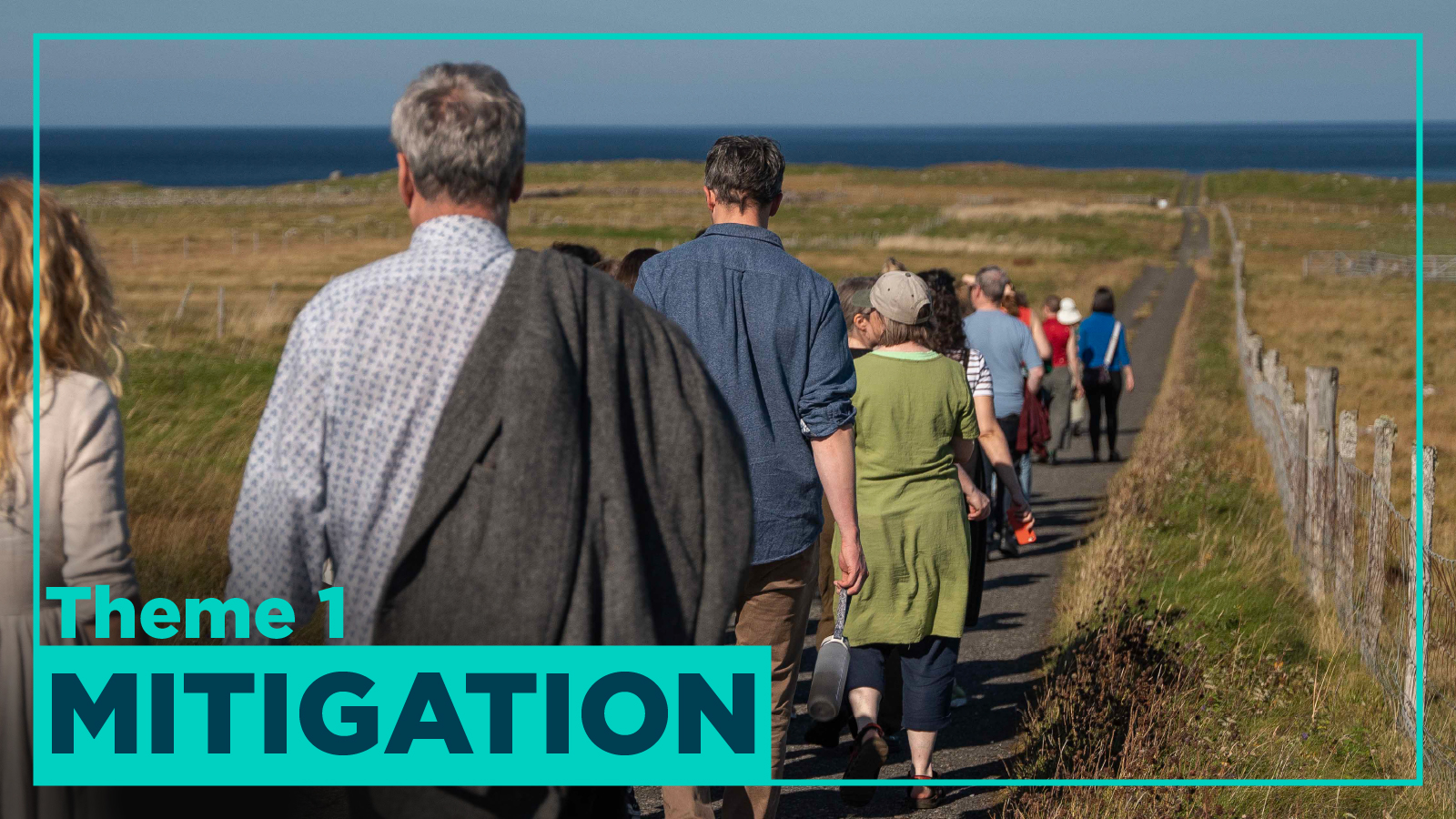
Image: Creative Scotland's Buain. Credit: Jack Wolf at Astar Media
Climate change mitigation focuses on the reduction or prevention greenhouse gases.
Projects across several funds, artforms and geographies are increasingly working to understand the emissions generated by their operations and the design and delivery of programmes.
Here are some examples of projects delivered in 2024/25 that are conscious of their emissions and are working toward mitigating these.
Creative Scotland | Buain Gaelic Arts Gathering
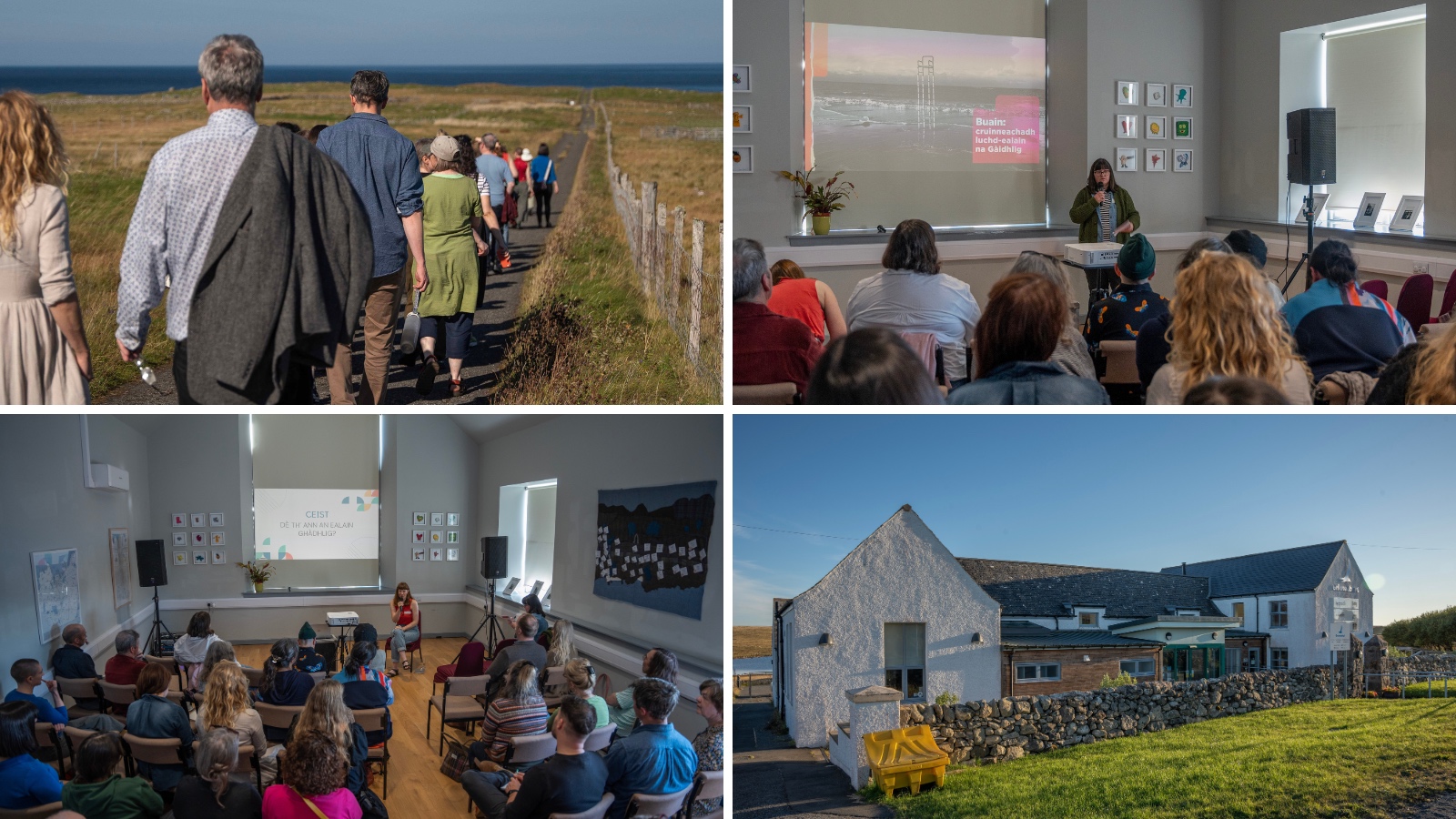
Image: Creative Scotland Buain Credit: Jack Wolf/Keri Johnson at Astar Media
Funding: Gaelic Arts Targeted
In 2024, Buain was hosted at Grinneabhat, in Bragar, Isle of Lewis. This iteration of the annual event was designed and delivered by Creative Scotland and was shaped around our Strategic Priorities, including Environmental Sustainability, which was at the heart of the approach to project management. The delivery team acknowledged the environmental impact of a national event and consciously planned to reduce emissions associated with the delivery of Buain.
What did all this mean in practice?
It meant the delivery team monitoring recording meeting dates, duration and attendees, thinking carefully how many staff needed to attend; staff travelling by public transport for most of the journey and car-sharing the remainder; providing a shuttle bus for attendees between the venue and main accommodation hub; providing information on local accommodation providers and encouraging time spent locally; working with the venue to identify to what extent they could align with our Environmental Sustainability Strategic Priority, and for us to be guided by their local knowledge and expertise.
For the first time we have used modelled data to inform design decisions associated with venue choice, staff and audience, travel, food, waste and planning meeting format.
We have also measured and articulated the emissions associated with a project and the 50+ attendees, and this means that we know, as precisely as is possible, that the total emissions for Buain 2024 (venue energy, staff travel to/from Lewis, on-island travel, audience travel and overnight accommodation, meetings and waste) is 2.83tCO2e.
More information: Buain Gaelic Arts gathering opens for registration
Gail Sneddon | Savage Spaces
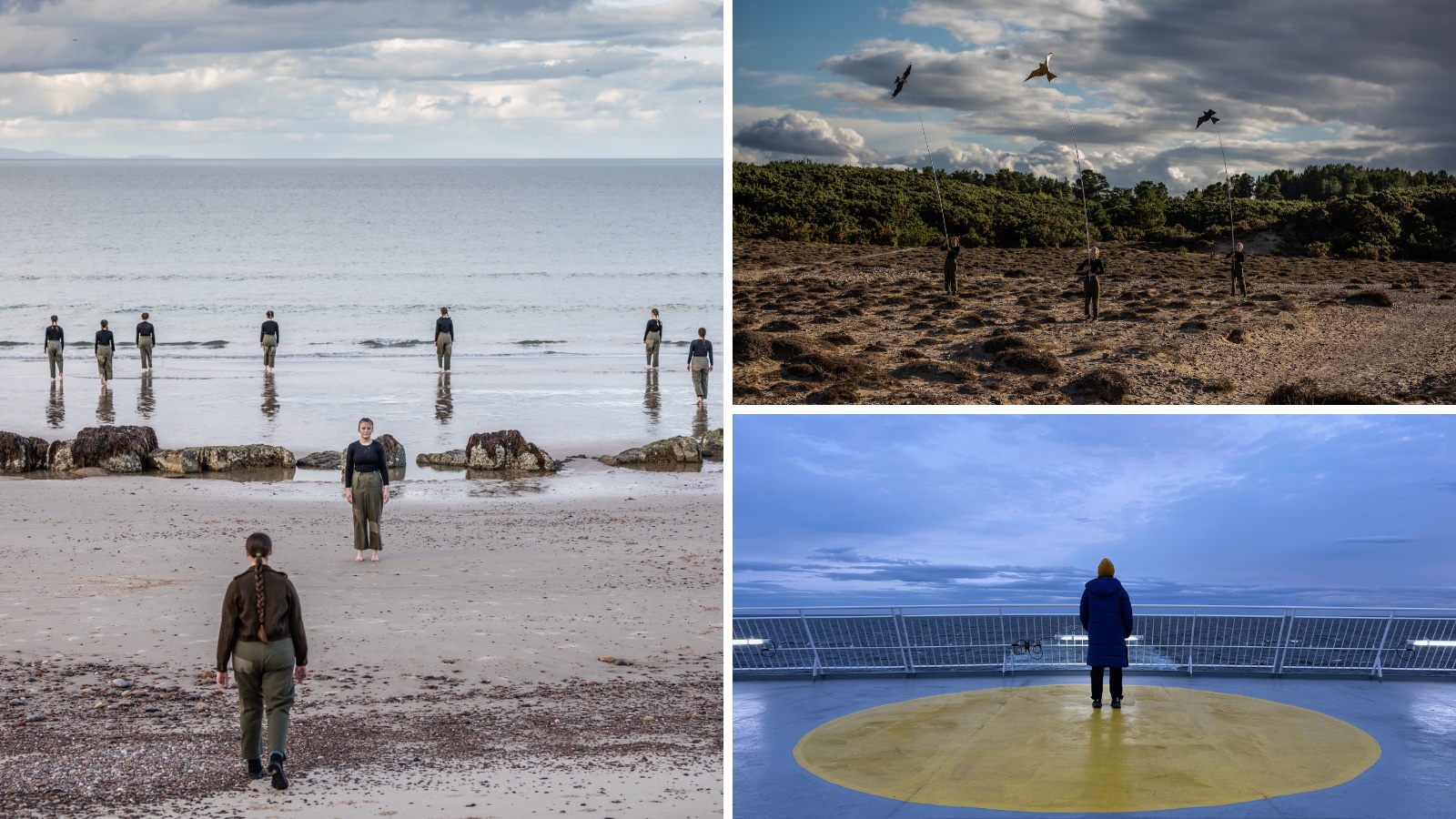
Image: Savage Spaces Credit: Paul Campbell
Funding: Open Fund for Individuals
Gail Sneddon is an award-winning dance artist based in Moray. Gail’s performance work brings an immersive and sensorial experience to audiences through orchestration and design of different strands of artistic practice including choreography, video, sound and place. Communities are often the co-creators of Gail’s work, and their voices and perspectives are at the heart of it. Savage Spaces builds on the success of site-based work SAVAGE, an artistic response by young women to the climate crisis that Gail created with Dance North Youth Company.
Savage Spaces was a dedicated 10-week research and development project during the summer and autumn of 2024, focusing on Tentsmuir Forest in Fife, Forvie Nature Reserve in Aberdeenshire, and various sites across Shetland. This period allowed Gail to explore and draw inspiration from these natural environments while also building key relationships with creative organisations, local community groups, young people, and potential collaborators, laying the foundation for a future body of site-based work.
Savage Spaces has been designed to have a low carbon and environmental footprint as part of its environmental and sustainable brief and messaging. The research explored how local audiences will move around the site in the least invasive way while taking full advantage of what the natural dramatic space can offer. As there is no venue, set or lighting the project has eliminated the emissions from energy consumption and waste generation.
More information: www.gailsneddon.co.uk / @gailsneddonchoreographer
Collective Architecture & ESALA | Net Zero Estate Research
Funding: Creative Industries Targeted
Collective Architecture and ESALA were appointed by Creative Scotland to undertake research into the net zero readiness of physical infrastructure of Scotland’s creative and cultural estate in 2024/25.
Over the last year they have researched and mapped the physical infrastructure of Scotland’s creative and cultural sector. The research has used data from a variety of sources and interviews with key venues and stakeholders to analyse the scale, scope and range of the infrastructure, including an initial assessment of net zero readiness and explores the relationship to National Policy, Strategy and Funding.
The research report is currently being finalised and will be published on our website in the coming months.
Solas Festival | 2025
Funding: National Lottery Open Fund for Organisations
Solas Festival is a not-for-profit organisation which hosts an annual music and multi-art festival in Errol Park, Perthshire. This year’s festival runs from 20 - 22 June 2025.
In 2025, they joined the Green Vision for Sustainable Events network, pledging to take positive climate action and reduce the climate impact of outdoor live events. As part of their pledge, Solas Festival will now measure emissions annually, improve sustainability of food sourcing, share best practice with other festivals and reduce fossil fuels on-site.
More information: Solas Festival / Vision for Sustainable Events
2024/2025 Funded Projects - Theme 2: Residual Emissions
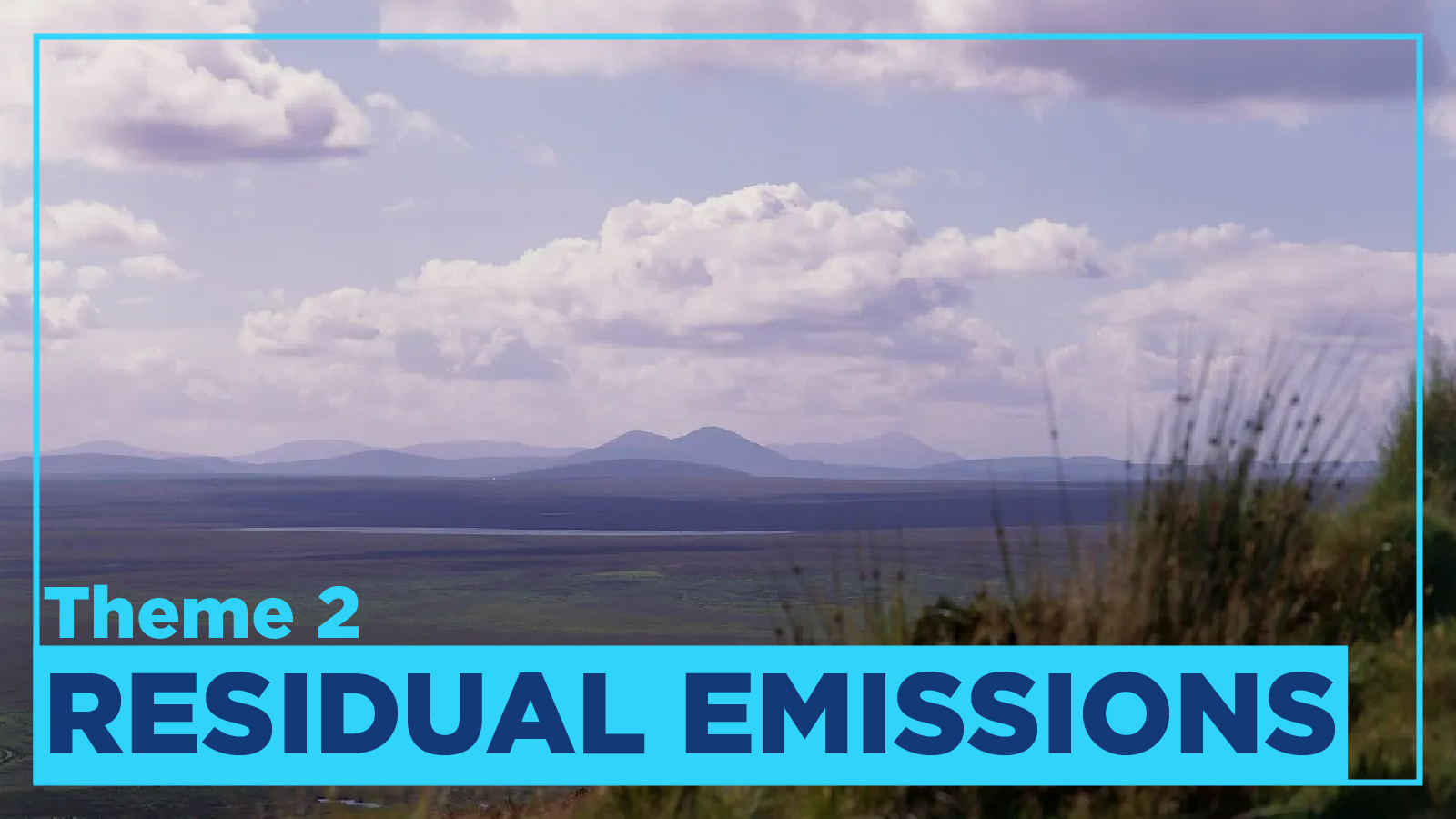
Image: The Flow Country. Credit: Hamish Hutchinson via Visit Scotland
While working to better understand and reduce our emissions, thinking about the long-term planning required to address our residual emissions as we move closer to 2030 and 2045 is also needed.
The establishment of pathways to net zero and a plan to balance the residual emissions will become increasingly valuable to articulate the transformation change that is required of us all. During 2024/25 Creative Scotland developed its pathway to net zero - we are working to implement the organisational systems change that will aid us to reduce our emissions from 2025/26 to meet the science based intermediate targets to help us achieve net zero by 2030.
We’ll be able to share more of the detail on those changes next year, along with the approaches of some Multi-Year Funded Organisations to residual emissions.
In the meantime, you can find more information on our position on residual emissions, which follows the current available Scottish Government guidance within the Environmental Sustainability Funding Criteria.
2024/2025 Funded Projects - Theme 3: Adaptation
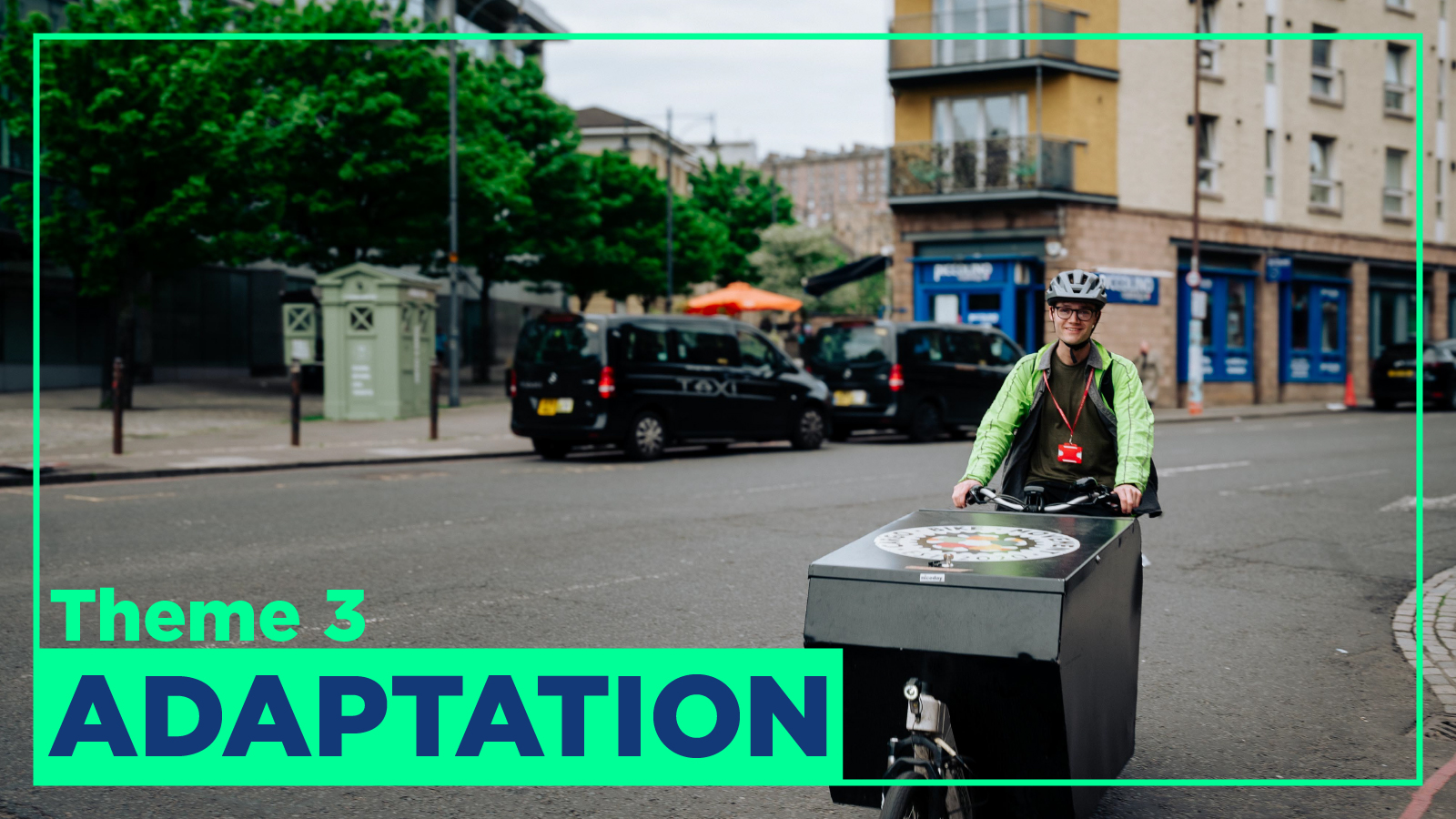
Image: YMI Cargo Bike Movement Credit: Andrew Paterson
Adaptation is different from mitigation. While mitigation tackles the causes of climate change, adaptation is all the actions and solutions that a country, region, city or community can develop and put in place to build more resilient societies and economies. It involves responding to risks and the impacts of climate change that are already happening, or we expect to happen.
The following projects are some examples of adaptations to delivery, programming, sharing and prioritisation of adaptation within an organisation.
City of Edinburgh Council | Cargo Bike Movement
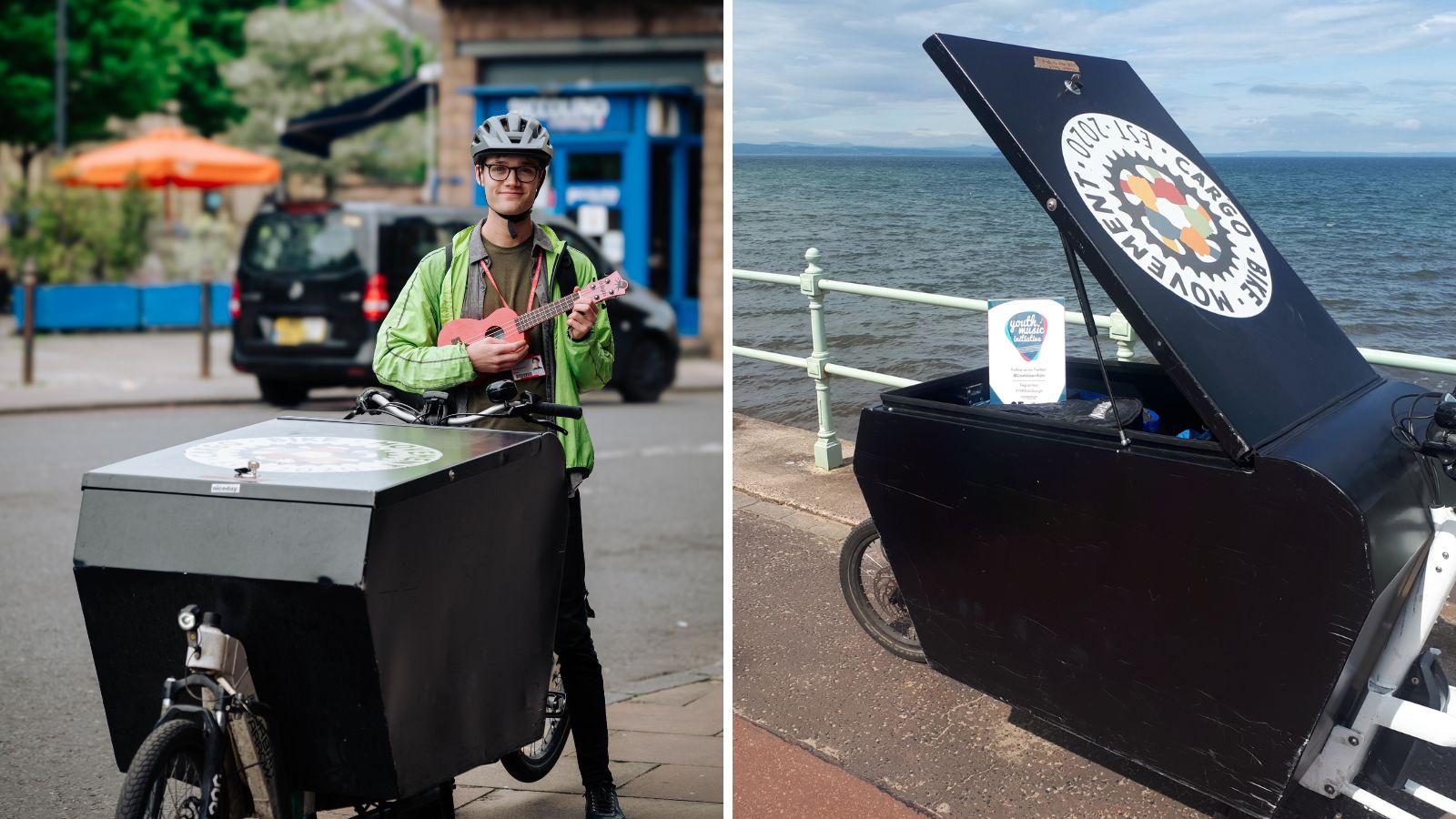 Image: YMI Cargo Bike Credit: Andrew Paterson
Image: YMI Cargo Bike Credit: Andrew Paterson
Funding: YMI Formula Fund
The Scottish Government’s Youth Music Initiative (YMI), which is administered by Creative Scotland, aims to create access to high-quality music making opportunities for children and young people. The initiative enables children and young people across Scotland to achieve their potential through music making and supports the development of the youth music sector.
As part of their award the City of Edinburgh (CEC) YMI Team pursued an opportunity to adapt their methods of transportation of musical equipment and contribute to the CEC 2030 net zero target. A member of staff had seen an advert within their employee newsletter to try a cargo bike for work which resulted in a pilot with the Cargo Bike Movement, Tollcross.
In 2024/25 they trialled the use of an electric cargo bike to move ukuleles between schools which not only reduced their transportation emissions but created a sense of excitement within the schools they operate by setting a new visual example for pupils and staff.
During the trial, ukuleles were moved 56km between 10 schools by 3 members of the YMI Team, avoiding the 0.1tCO2e that would have been generated using a diesel fuelled car. Following the successful trial, the team plan to extend the use of cargo bikes to deliver their resources across Edinburgh.
More information: Cargo Bike Ukulele Deliveries / Cargo Bike Movement
Craignish Village Hall
Funding: National Lottery Open Fund for Organisations
Craignish Village Hall is a well-insulated, low impact, energy efficient building that opened in 2005. They host an annual programme of arts performances tailored for the surrounding rural population.
In late 2023, following a record-breaking rainfall, the Craignish Peninsula was left isolated, causing a severe landslip and closed the vital A816 road which links the area to the rest of the country. 6000 tonnes of debris slammed into the road near Ardfern, blocking access to the peninsula - road works on the A816 remain in place today.
During this time, Craignish Village Hall adapted their purpose to meet the needs of those impacted by the weeks of isolation caused by the landslip. They opened the hall for the local community to meet, access resources, keep warm and cook.
Adapting the design and delivery of their annual programme to reflect their location is not new to the organisation. They also participate in a local micro network of venues across the Highlands that work collegiately as promoters, providing peer support and sharing skills, knowledge and experience to enable artists to tour rural Scotland. This network is supported by The Touring Network.
More information: Craignish Village Hall
Scottish Dance Theatre | Travelling Ideas Report
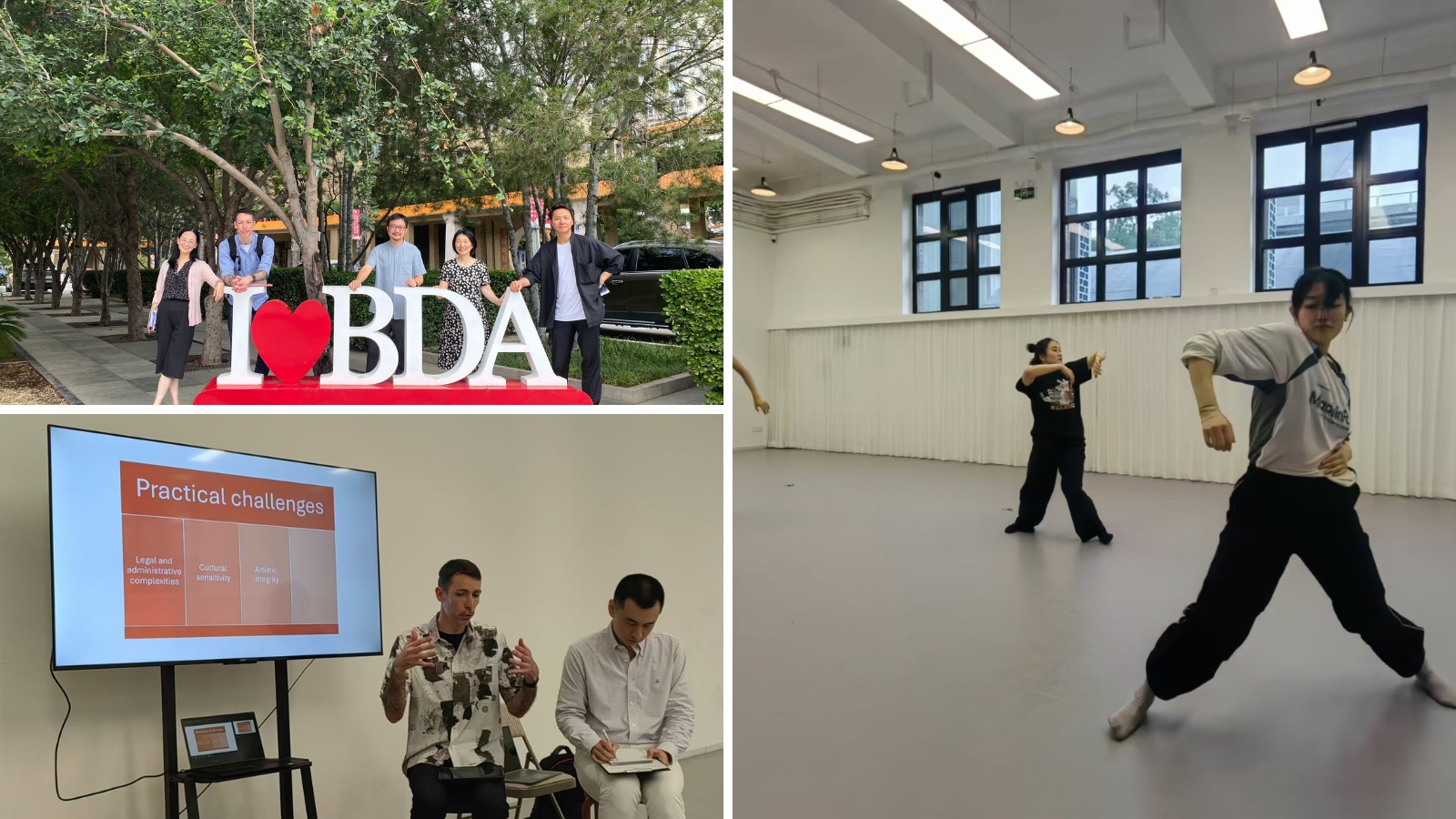
Image: Scottish Dance Theatre Credit: Scottish Dance Theatre
Funding: Regular Funding
In addition to their RFO activity, Dundee Rep and Scottish Dance Theatre were supported through the British Council Connections Through Culture grant programme, enabling the Artistic Director, Joan Clevillé to visit China in July 2024 to scope the potential for licencing UK theatre and dance production to international partners. The report reflecting on this visit illustrates how licensing can facilitate cultural exchange and artistic growth without the environmental damage caused by physical touring.
More information: Travelling Ideas Report | Dundee Rep
Mhairi Killin | Svalbard & The Herbrides – Island Archipelagoes in the Anthropocene
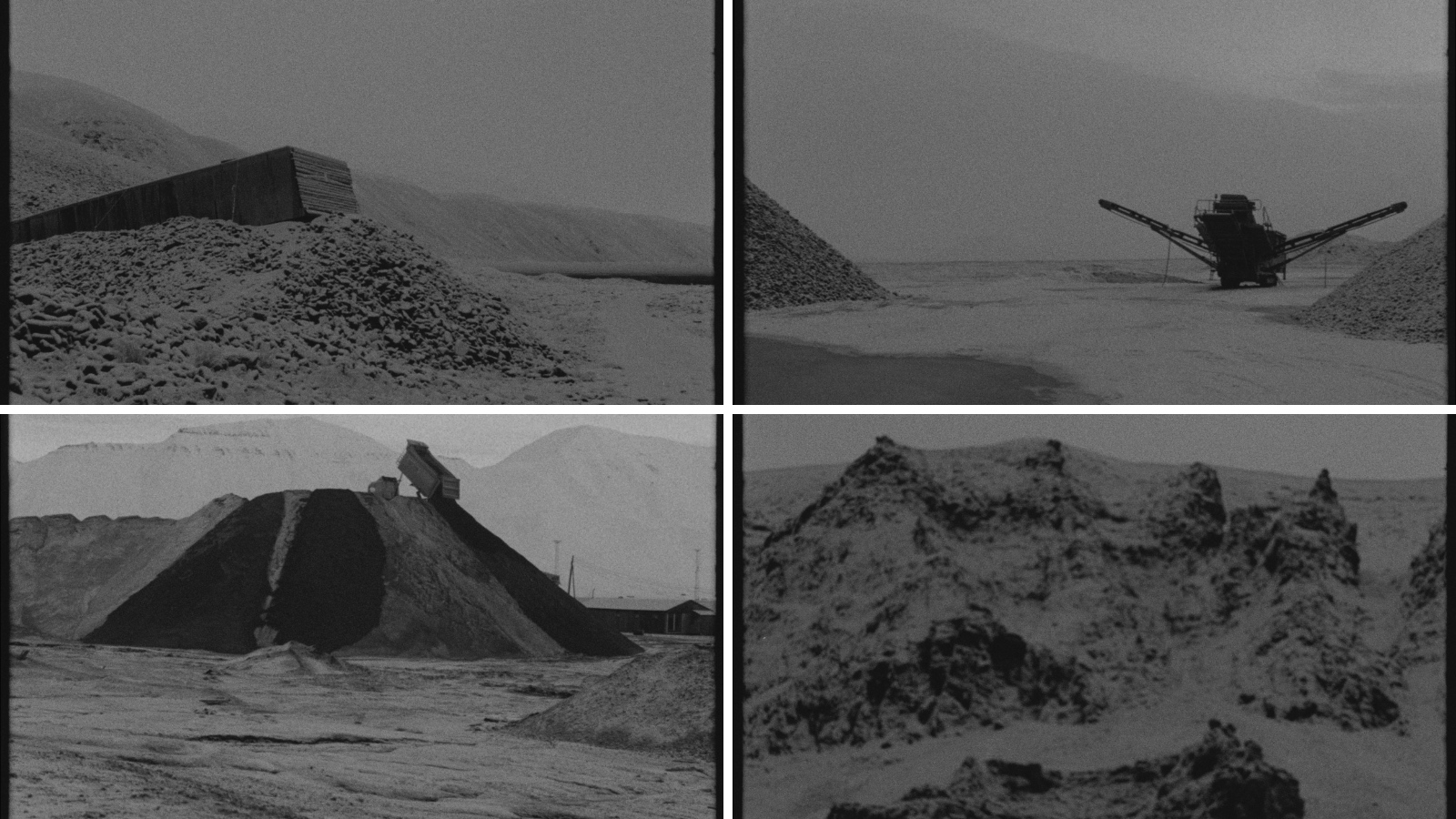
Image: Island Archipelagoes in the Anthropocene Credit: Mhairi Killin
Funding: Open Fund for Individuals
Mhairi Killin is a multidisciplinary artist who lives and works on Iona, exploring the island's landscapes that surround her and her home.
Her recent research and development project in partnership with Artica Svalbard, and nominated by Office for Contemporary Art, Norway, will lead to a body of work for exhibition and dissemination in 2026/27 in Scotland and Norway.
This project is a research and knowledge exchange between two island archipelagoes facing the challenges of climate change. Artica Svalbard is part of the Nordic Alliance of Artists’ Residencies on Climate Change and provides a unique context, relevant to the Hebrides, in which to research how artistic enquiry can support transition and resilience in communities towards a sustainable and thriving future.
More information: Mhairi Killin
2024/2025 Funded Projects - Theme 4: Climate Justice
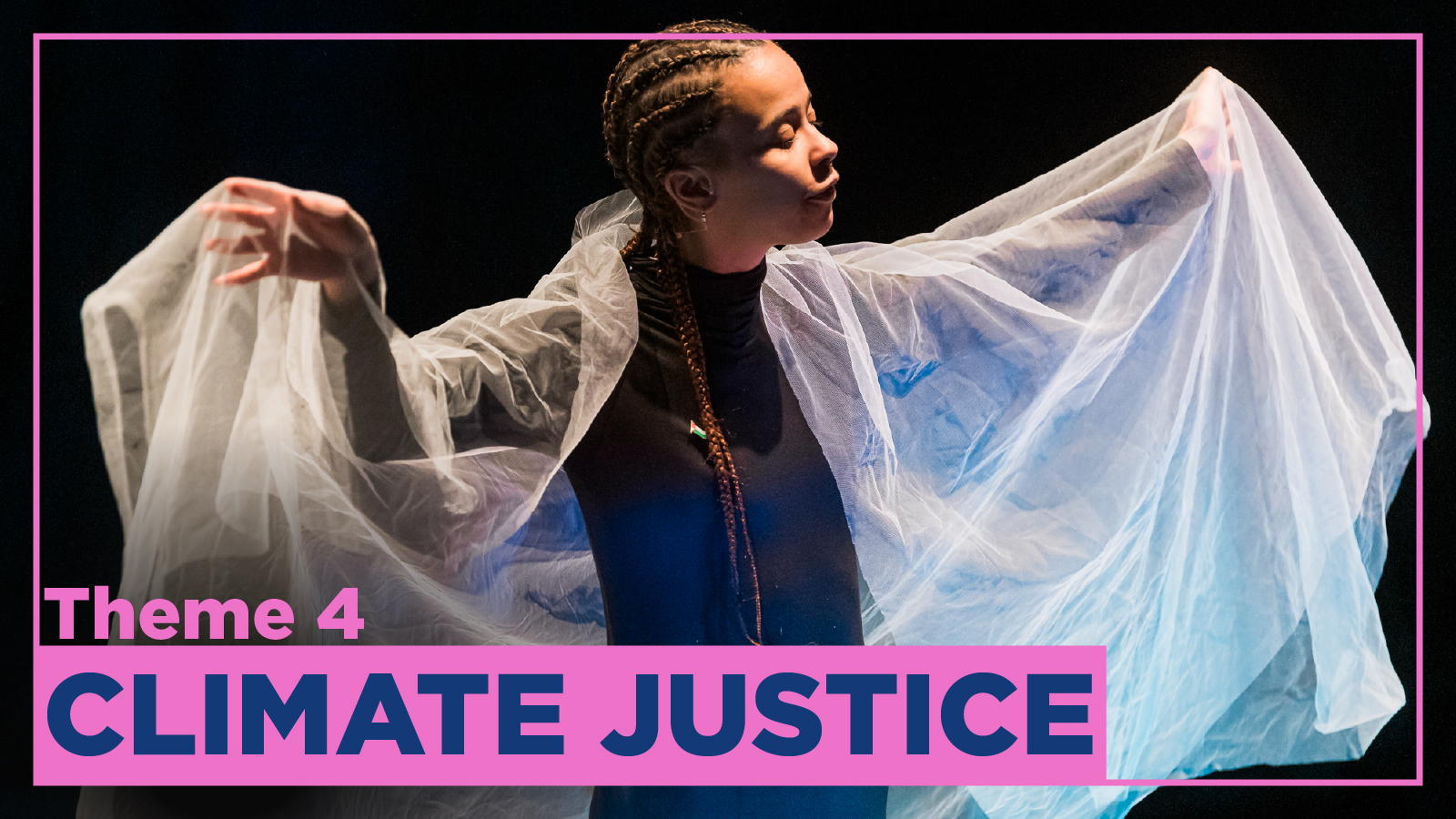
Image: Take One Action Credit: Tiu Makkonen
Climate justice takes a rights-based approach to climate change and treats it as a social, political and cultural issue as much as a scientific, technical and economic one.
We believe climate justice should help shape the approach of the cultural and creative sector to sustainable development. Climate justice work is at a developmental stage and is not yet well established within the sector.
However, there is a strong relationship with sector approaches to progressing Equalities, Diversity and Inclusion, for which there are established methodologies and practices which can be drawn on.
The following have put climate justice at the heart of their programming.
Montrose LandxSea Film Festival 2024 / Hebrides International Film Festival 2024 / Take One Action
Funding: Film Festival and Screening Programme Fund
In 2024 the Montrose LandxSea Film Festival, Hebrides International Festival and Take One Action Film Clubs highlighted the intersection between environmental and social justice through not only their programmes but a place-based approach to programming.
Montrose LandxSea Film Festival 2024
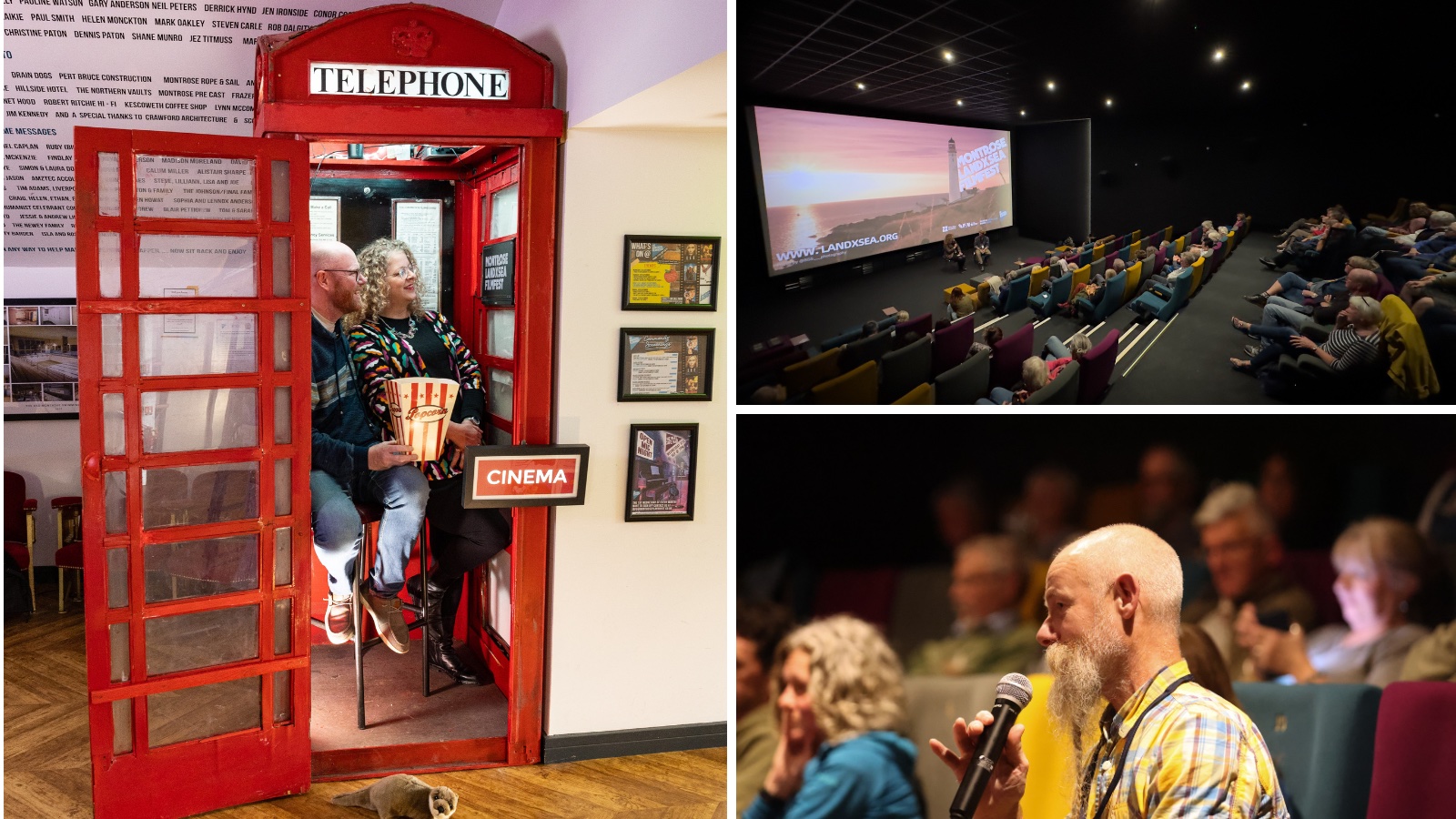
Image: Montrose LandxSea Film Festival Credits: Graham Black / Paul Reid
Montrose LandxSea Film Festival, as Scotland’s premier event for films and discussions that spark green ideas and inspire action, featured ground-breaking climate justice focused films, dynamic guest speakers, and interactive discussions, encouraging audiences to engage with urgent environmental challenges.
The festival explored the complex connections between land and sea, showcasing a diversity of environmental narratives from global and local perspectives, and also offered the opportunity to focus on the unfolding challenges that face Montrose, including flooding, rising sea levels and coastal erosion.
More information: Montrose LandxSea Film Festival
Hebrides International Film Festival 2024
The purpose of the Hebrides International Film Festival is to enable the island's audiences to have access to current, independent, award-winning international cinema, including environmental documentary, through a range of feature and short films, animation, and VR immersive experiences, in their community venues.
The theme of the 2024 festival was Adapting to a Changing World - presenting inspiring environmental documentaries and film dramas with new perspectives.
More information: Hebrides International Film Festival
Take One Action
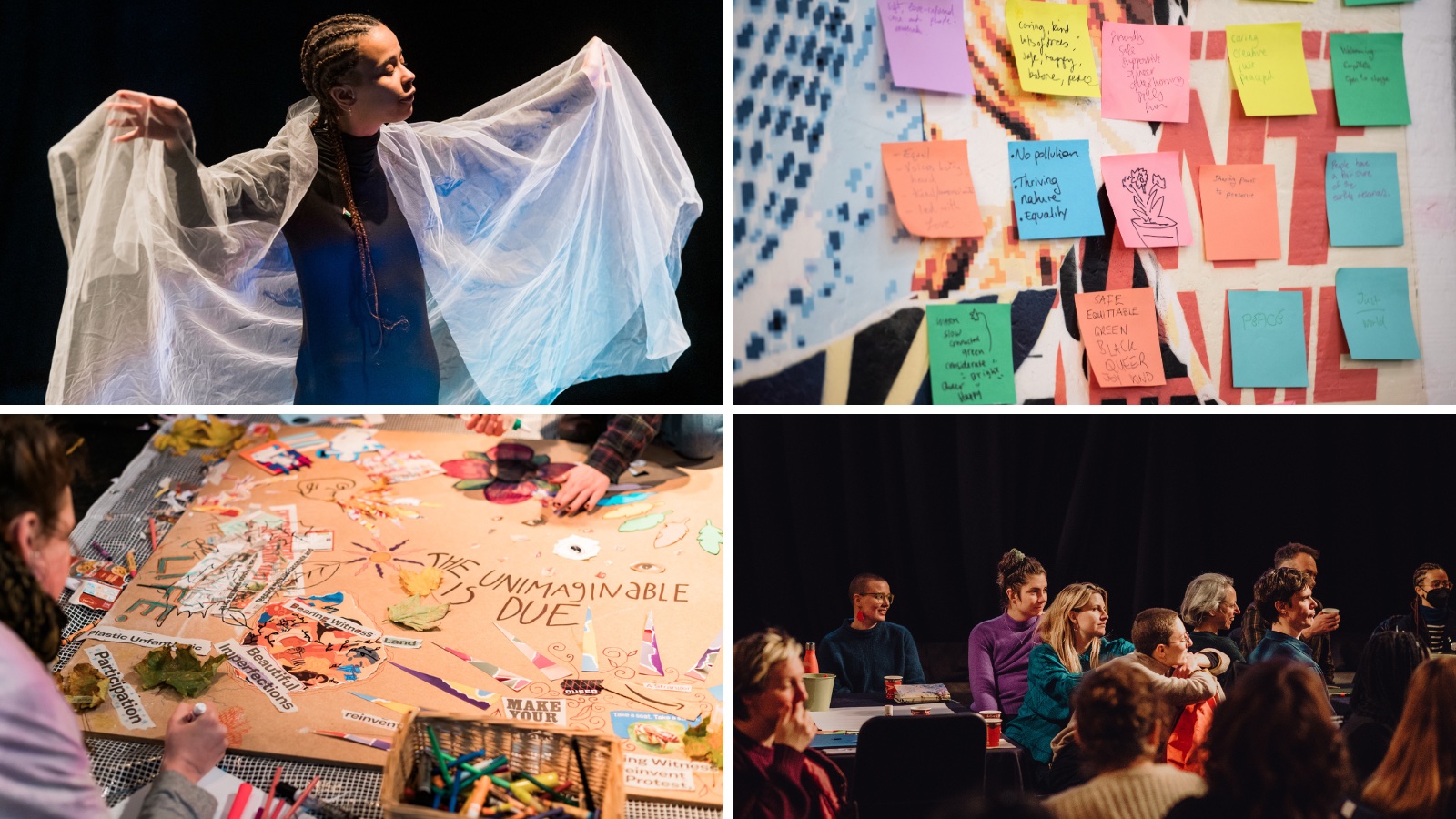
Image: Take One Action Credit: Tiu Makkonen
Take One Action are an organisation who bring communities together to harness the transformative potential of film and storytelling. Take One Action Film Clubs are community run clubs, offering community groups or existing film clubs access to a specially curated catalogue of world changing films. These clubs remove the difficulty of negotiating film rights and concentrate on empowering communities and increasing creative, impactful action for a fairer and more sustainable world.
By subsidising access to the films they curate, Take One Action help the films reach wider audiences and maximise their impact. Doing so both fulfils the hopes of the filmmakers and responds to appetites from communities across the country who wish to access these stories of hope, change and transformation.
More information: Take One Action
Fruitmarket Gallery and Karine Polwart
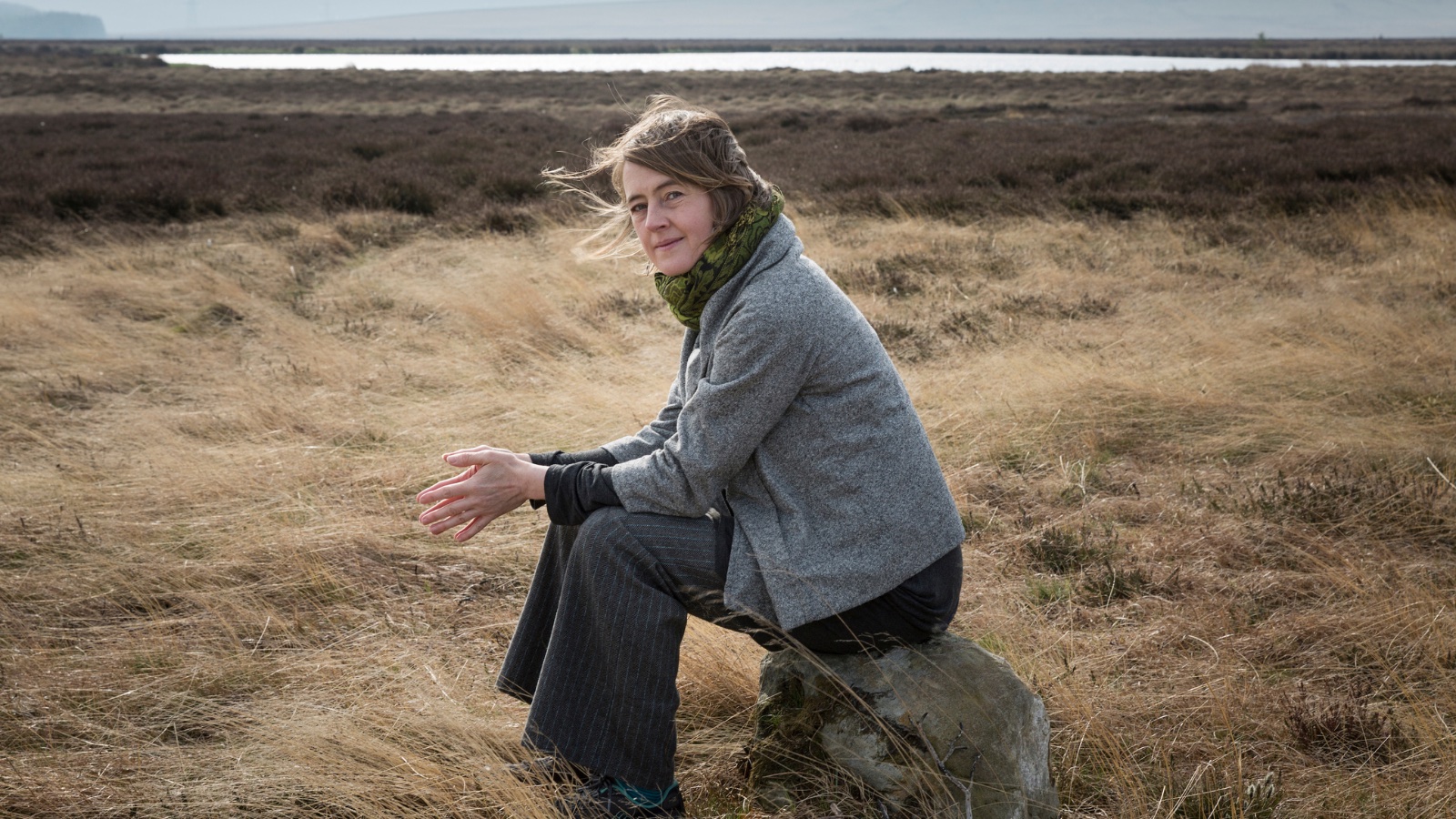
Image: Karine Polwart - Dr Gavin Wallace Fellow Credit: Suzanne Heffron
Funding: Dr Gavin Wallace Fellowship
The Dr Gavin Wallace Fellowship offers the opportunity for a mid-career writer to spend a year dedicated to producing their own new writing, gaining support and inspiration from a host organisation. Every year, the Fellowship has a broad theme to guide the relationship between the writer, their work, and the host. Fruitmarket’s chosen theme is ‘Attached to Land’.
The environmental focus of the theme takes inspiration from Fruitmarket’s 2025–2026 programme, including exhibitions from the late Native American artist Jaune Quick-to-See-Smith and Scotland-based artist Ilana Halperin.
Working through the year, Polwart will engage with Fruitmarket’s programmes to fuel her writing, looking to a suite of lyrics from her existing original music repertoire which serve as poetic provocations to deeper, multi-form writing.
Polwart’s proposed project is rooted in the Forth Valley and Borders coastline, which is a landscape of personal significance and also a social, economic and political microcosm of contested edge land, shaped by historic and contemporary industries and forces of local and global power.
Along the John Muir Way from Grangemouth to the Tarmac Cement Works and Torness Power Station beyond Dunbar, she is fascinated by the ideas and practices of extraction and devotion, memorialisation and care, environmental stewardship and deep geological time embedded in this landscape.
More information: Fruitmarket
Glasgow Barons | Musicians in Exile
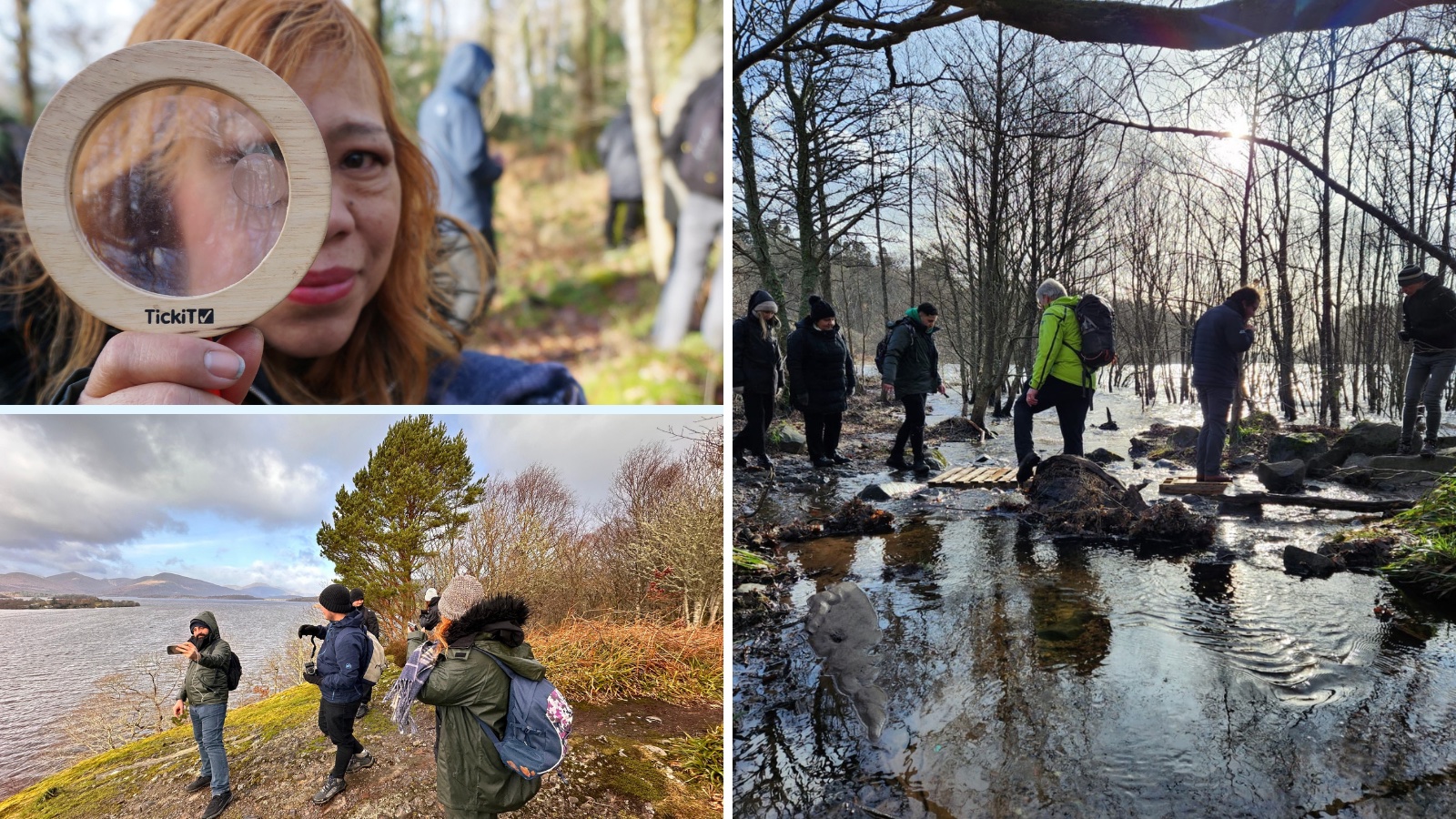
Image: Musicians in Exile Credit: Chris Watt Photography
Funding: National Lottery Extended Programme Fund
The Glasgow Barons have been helping make music in Govan since 2017 with schools, community groups and local people. Musicians in Exile provides a space for refugees and asylum-seekers from across the city to relax, play music and regain identities by playing the music of their homelands.
As part of this project, The Glasgow Barons collaborated with Gaelic rock band DLÙ and the Loch Lomond and Trossachs National Park to address and increase awareness of Scotland's global majority (i.e. ethnic minority) on the impact of climate change on Scottish nature, encouraging New Scots to venture out of an urban comfort zone into appreciating and understanding Scotland's wider beauty. They premiered their new song in Edmiston House for the Govan Music Festival.
More information: The Glasgow Barons
Lauren Gault | Samhla
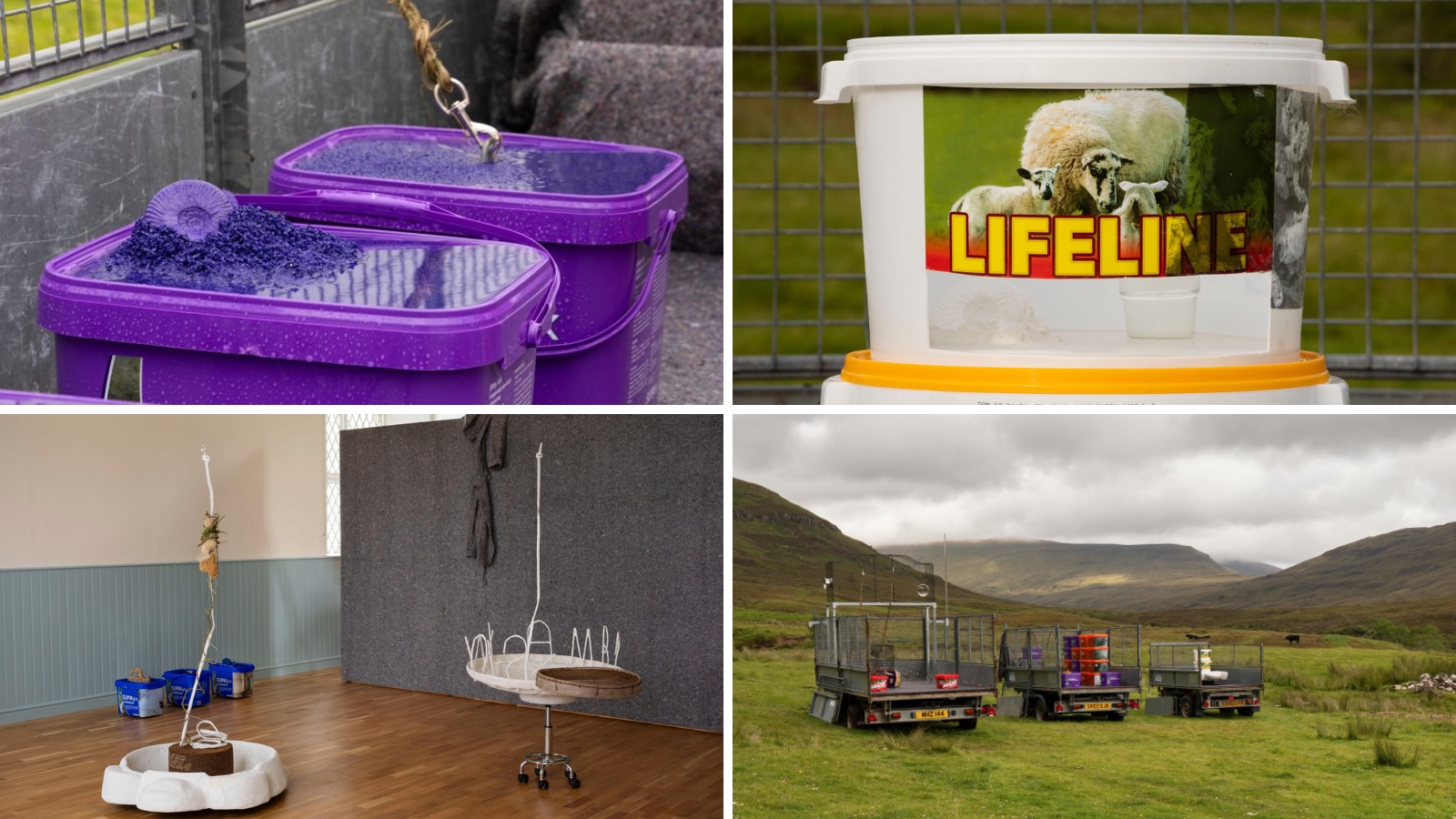
Image: Samhla Credit: Ruth Clark
Funding: Open Fund for Individuals
Lauren Gault is an artist working nationally and internationally in sculpture and installation. Their research-led, process-driven practice considers the political, ethical and emotional implications of our changing interactions with matter and the environment.
Lauren was invited by ATLAS Arts and Tuath to visit the former croft at Fàsach and to think about the question: If the land could speak and you were listening, what would you say back?
Working with many different people whose work tells stories about land – archaeologists, palaeontologists, folklorists, classicists, geologists and soil researchers – the project brings together references that speak about how Skye’s landscape has been controlled, valued, changed or understood across expansive time periods.
More information: www.laurengault.co.uk / atlasarts.org.uk/programme/projects/samhla
2024/2025 Funded Projects - Theme 5: Programme Content
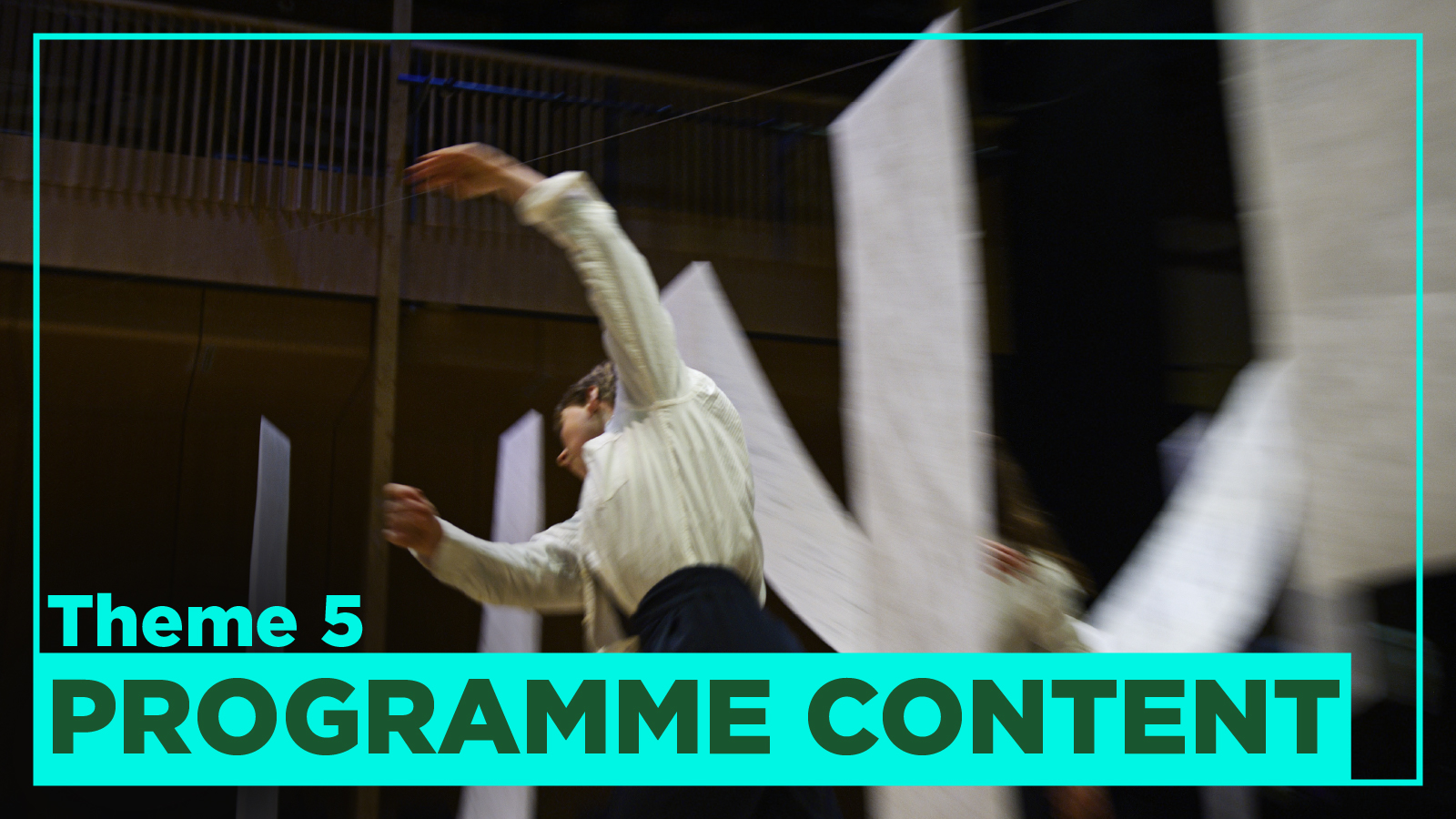
Image: A Journey of Flight by Kathryn Gordon Credit: Keiba Film
The reach and potential to engage and influence people presents an opportunity for the cultural and creative sector to lead in the changing of behaviours and practices that positively impact environmental sustainability.
Cultural activity is not afraid to address complexity and confront some of society's major challenges in ways that are provocative and engaging. Creativity asks the critical questions rather than presenting technical solutions and can often open new dialogues and a better understanding of our society.
The following projects have climate centric themes that include Scotland’s temperate rainforest, the Anthropocene and its impact on the migration and movement of people, developing sustainable practices within a school and rewilding.
Loch Shiel Spring Festival
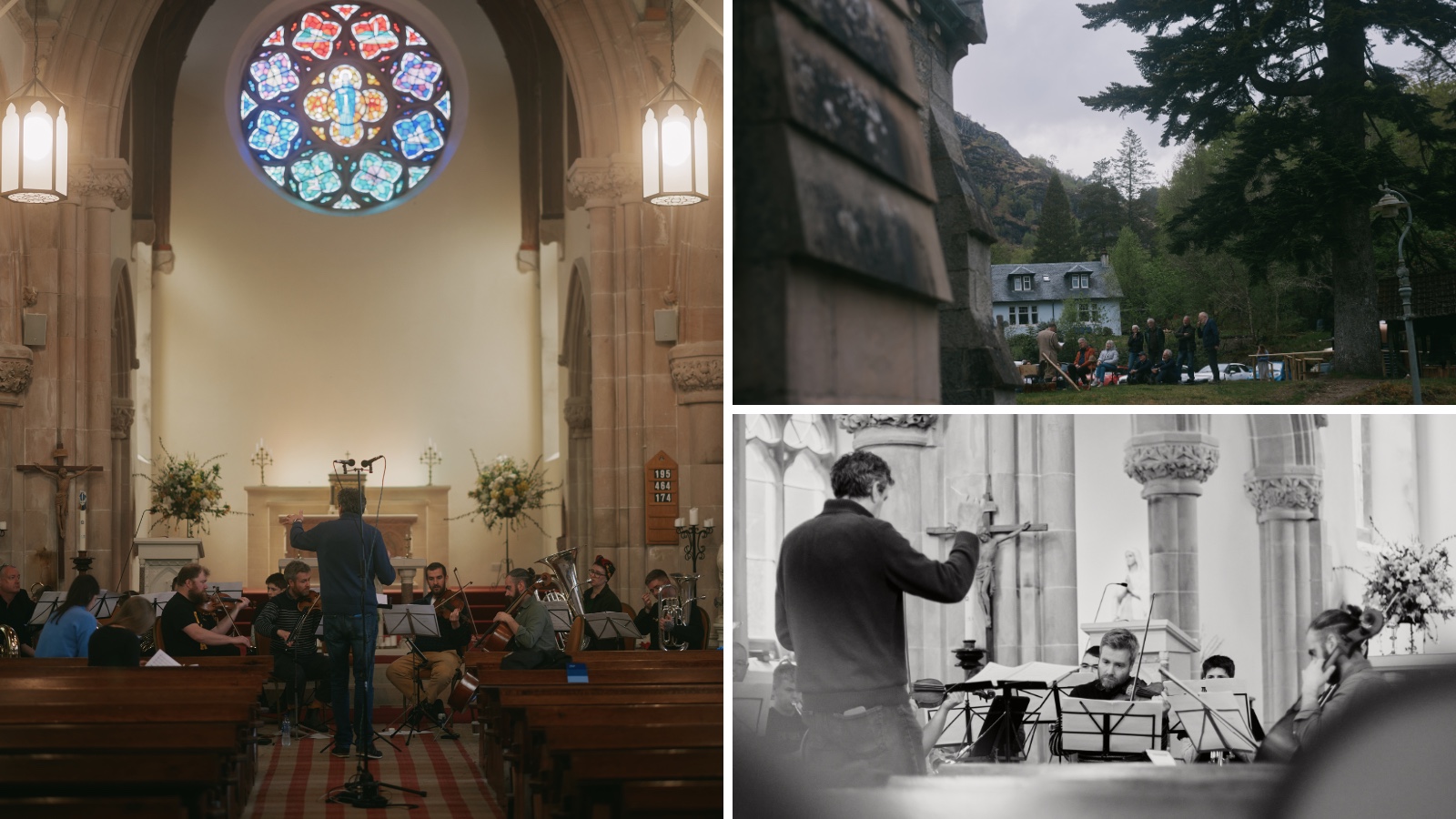
Image: Loch Shiel Festival Credit: Louise Mather
Funding: National Lottery Open Fund for Organisations
The Loch Shiel Spring Festival, a chamber music festival in the Lochaber area of the Highlands is designed to bring together the communities around the Loch Shiel. In 2024, the festival celebrated the temperate rainforests of the five west highland peninsulas, bringing together local communities, audiences and internationally renowned artists with the shared cause of highlighting the importance of native woodland restoration.
Temperate rainforest is a globally important habitat, and Scotland has the best and most precious examples of these in all of Europe. It is as important as tropical rainforest but even rarer as it provides a refuge for some of the world’s most endangered bryophytes and lichens.
Yet few people know it exists and fewer still know how globally significant it is. Placing the theme of woodland restoration at the heart of the festival aimed to bring awareness of, and connect the festival audiences to, this important issue.
A highlight of the 2024 festival was the creation of a new large-scale work for children’s Gaelic choir and ensemble, composed by Morvern’s own Lisa Robertson. The work was the culmination of workshops and rehearsals involving local children from Acharacle, Lochaline and Strontian primary schools, who were joined by young brass players from Lochaber schools. The work celebrates the Gaelic poetry of local bard Dr John Maclachlan and the wonderful natural habitat that the local native woodlands provide.
More information: Loch Shiel Festival
Kathryn Gordon | A Journey of Flight
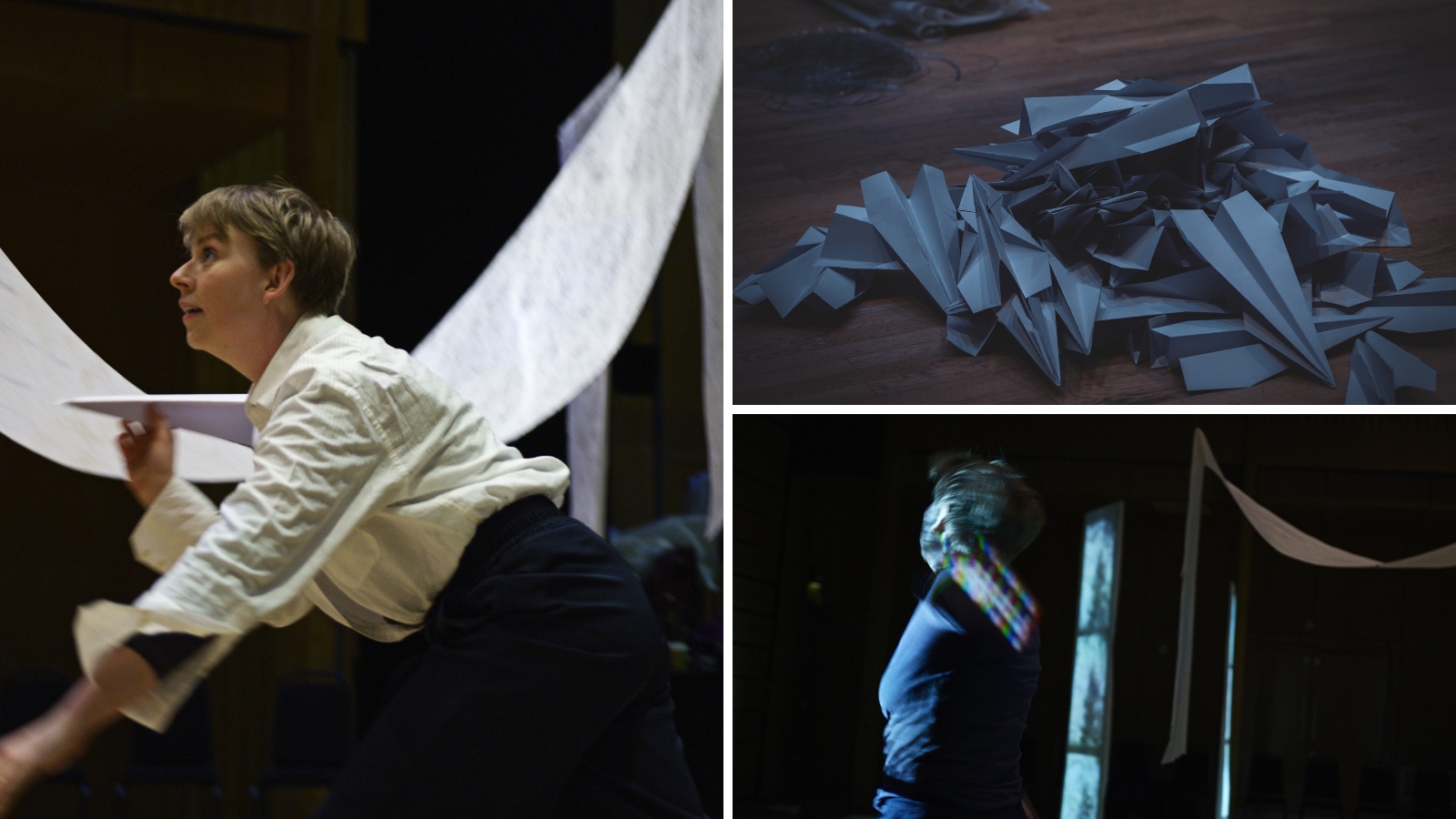
Image: Journey of Flight Credit: Keiba Film
Funding: Touring Fund for Theatre and Dance
Kathryn Gordon is a dance artist, choreographer and programmer based in the Shetland Islands, who is passionate about people and dance and bringing the two together.
A Journey of Flight is an all-female, immersive dance experience inspired by climate change and its effect on species and their habitable environments. Kathryn worked with Jenny Sturgeon (Composer), Alison Piper (Projection and Moving Image) and Jorja Follina (Dancer) to develop a piece that responds to the themes of migratory birds, how environmental change influences their migratory journeys, the Anthropocene and its impact on the migration and movement of people.
Through the work, the team explored human impact on the environment and our personal connection and nostalgia to places. By studying the landscape and those in it through the meditative experience of performance, the team brought these issues to the forefront, through a relatable, encouraging and accessible manner. The piece has a set comprising fully recycled material, including hanging pieces of white fabric which is road underlay from a large, controversial windfarm. As the piece looks at external factors impacting birds’ movements, it was important for the creative team to design a set that was circular, using and avoiding creating, waste.
Although the changing climate and its impact inspires the work, this is abstracted and presented in an accessible and relatable manner. The team’s aspiration is that the audience feels captivated and encouraged to make subtle changes through a powerful, positive performance. A Journey of Flight toured 6 venues across Scotland with support of the Touring Fund for Theatre and Dance.
More information: www.kathryngordon.org
St. Palladius Primary School | Building a Sustainable Future
Funding: Schools Screen Education Fund
St. Palladius Grows is the film made by the pupils of St Palladius Primary School in Ayrshire as the output of their Schools Screen Education Funding. The Building a Sustainable Future project enabled the learners to work with James Gibb, a local filmmaker to learn documentary filmmaking skills and then film their own journey in developing sustainable practices within the school.
Watch the film
Hanna Paniutsich | Iodine Time Machine
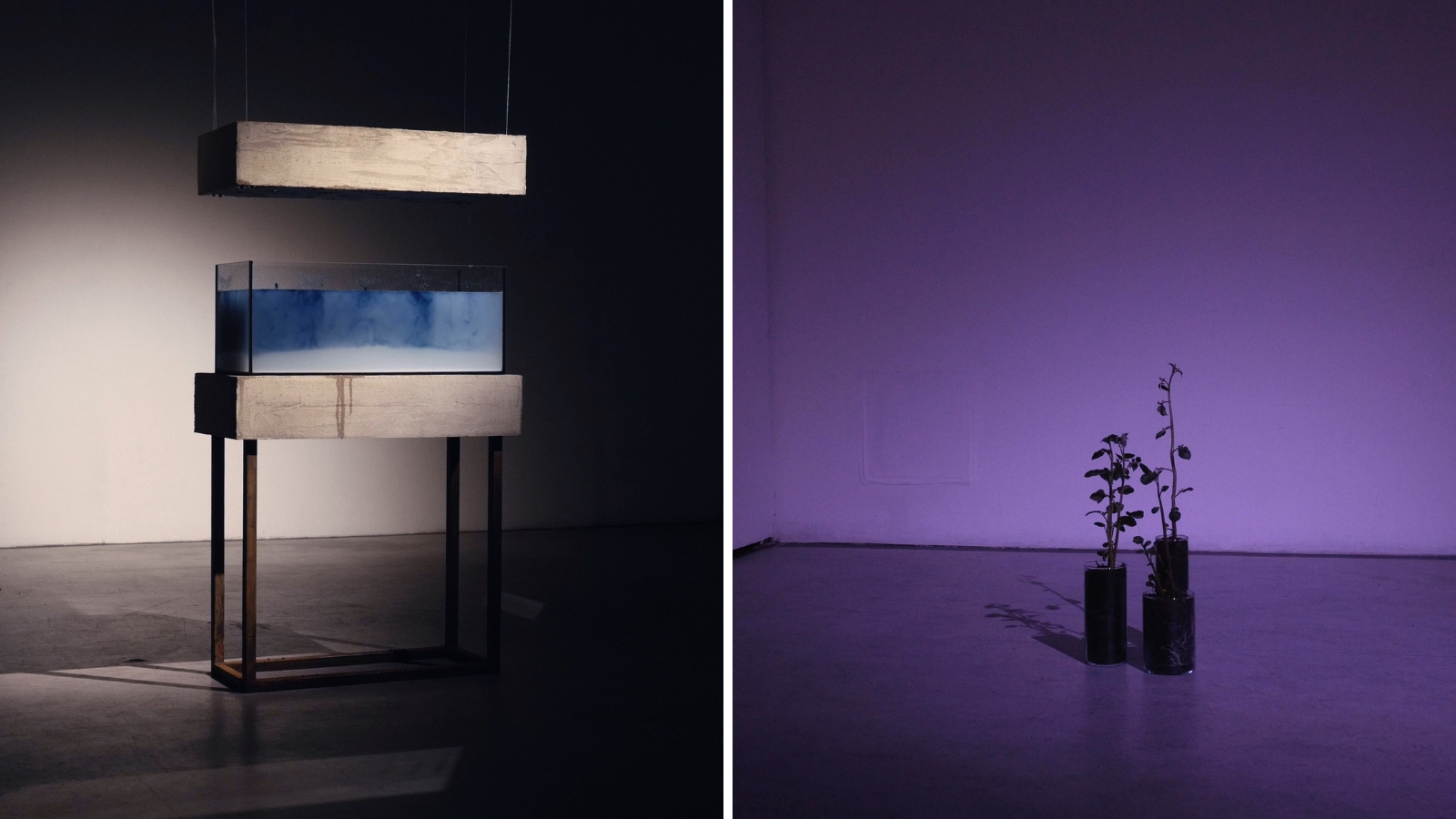
Image: Iodine Time Machine Credit: Hanna Paniutsich
Funding: Open Fund for Individuals
Hanna Paniutsich is a multimedia artist and researcher based in Glasgow, whose practice is heavily informed by scientific research, and whose work is a collage of personal stories and hi(r)stories, video footage, physical devices and biomatter.
Their current research interests are nuclear technologies, chemical pollution and the effects of radioactivity on living systems. The Iodine Time Machine aims to uncover the entanglements of nuclear technology and show an advanced laboratory of the consequences and long-term legacies of irradiated waste colonialism.
More information: www.xyana.xyz
Lucy Holden Wild | How to Rewild Yourself the Right Way
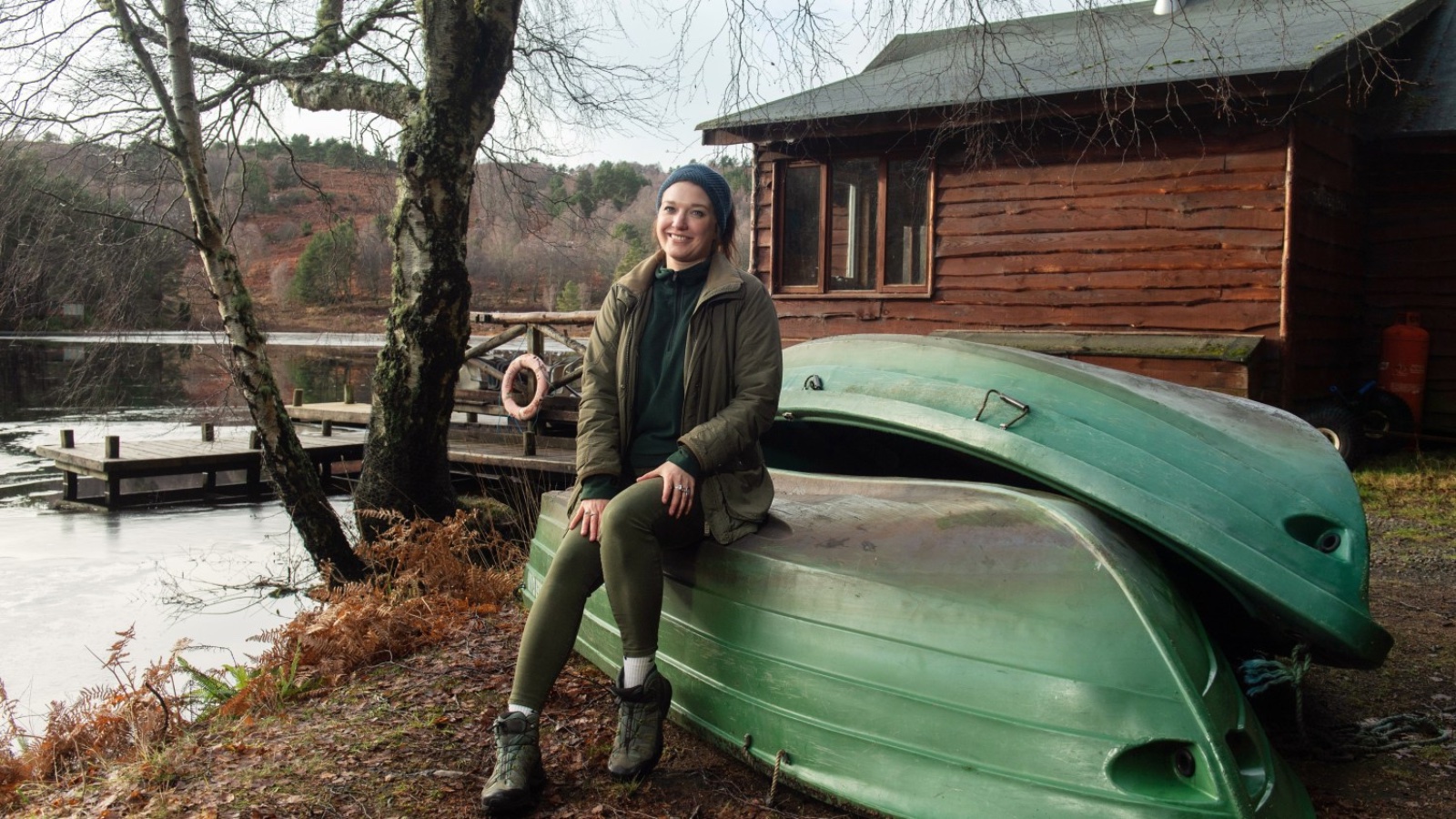
Image: Lucy Holden Wild Credit: www.jasonhedges.co.uk
Funding: Open Fund for Individuals
Lucy Holden is an author, screenwriter and award-winning journalist who has been spending a week a month throughout 2024 living and working alongside a generation of conservationists rewilding the highlands from the Aigas Field Centre in Beauly. The result of this research will be a 12-chapter book representing each month of the year.
Following on from her previous work Lucid, Lucy hopes to show what we can do to rewild ourselves and the environment away from industry, technology, the rat race and the health issues all those things are prompting.
Theme 6: A Nature Positive Economy
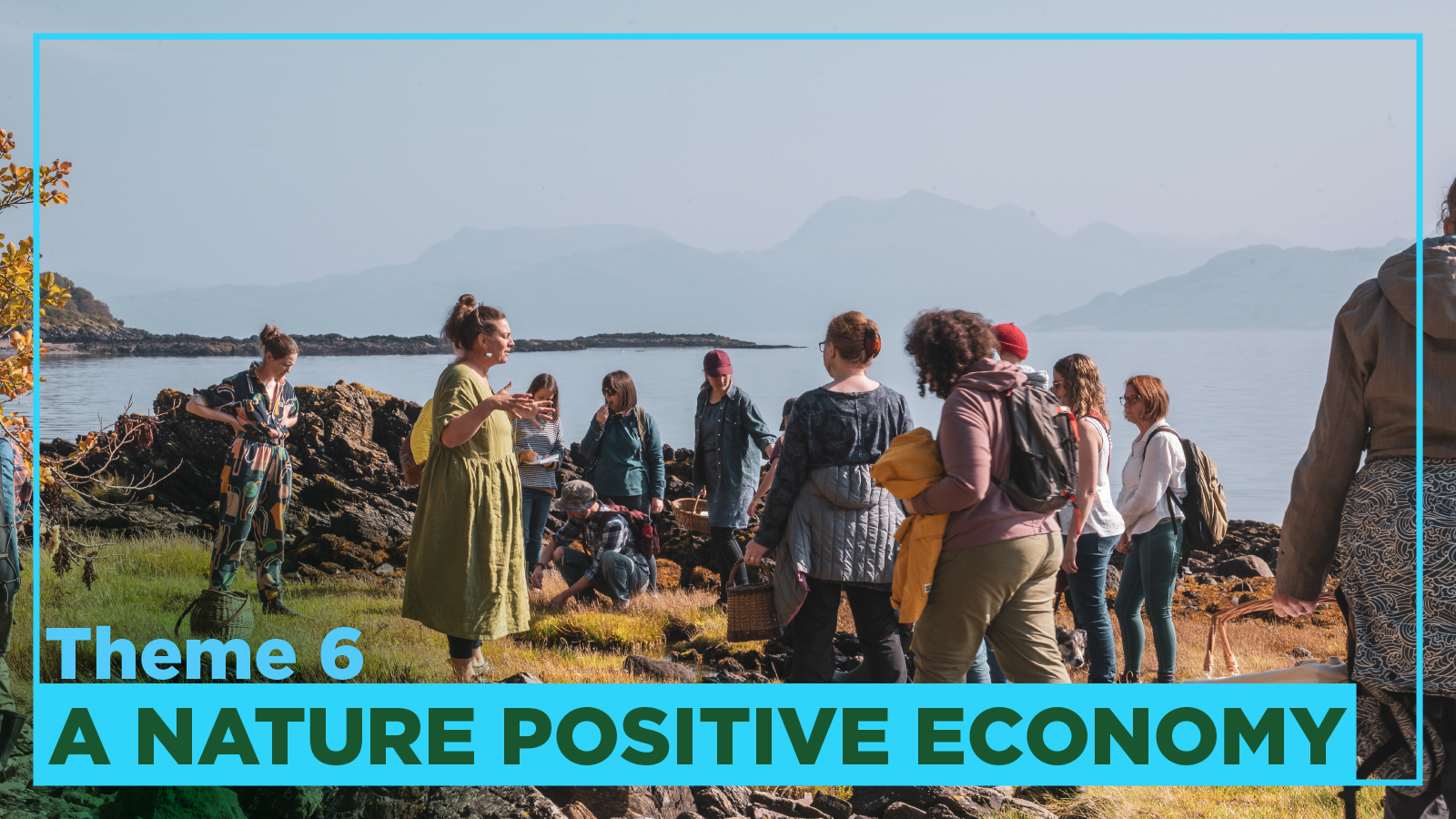
Image: Bivalve Murals Credit: Climavore
We believe that the early adoption of environmentally conscious sustainability practices will not only increase efficiency but will create new kinds of business opportunities for individuals and organisations working in the cultural and creative sectors.
The following projects are examples of models that embrace the circular economy and low impact processes and materials.
Arts Resource Management Scotland (ARMS)
Funding: Creative Industries Targeted
Arts Resource Management Scotland (ARMS) is a company which comprises representatives from across the creative industries, with a collective goal to create new ways for the cultural sector in Scotland to share resources, materials and equipment.
In 2024/25, the project trialled the recommendations included within their report into shared storage and asset management systems in Scotland’s cultural sector, the output from the initial phase work supported by Creative Scotland.
The aim was to test more effective and easier to maintain storage conditions with practical and economic benefits, and crucially, make sharing resources between partner organisations and the wider sector more manageable, efficient and accessible to practitioners at different levels, with standardised procedures. This will assist with targets of net zero for the sector by 2045 and contribute to the adaption of a circular approach to consumption by the sector.
A three-phase pilot scheme was completed in 2024. The deliveries included:
The trial phases are now complete and support for the project is ongoing, with funding committed for 2025/26 to sustain the storage and asset management system to transform the industries from a linear to circular model.
More information: ARMS – Sharing the way to net zero
Jess Holdengarde | Glimmer at Stills
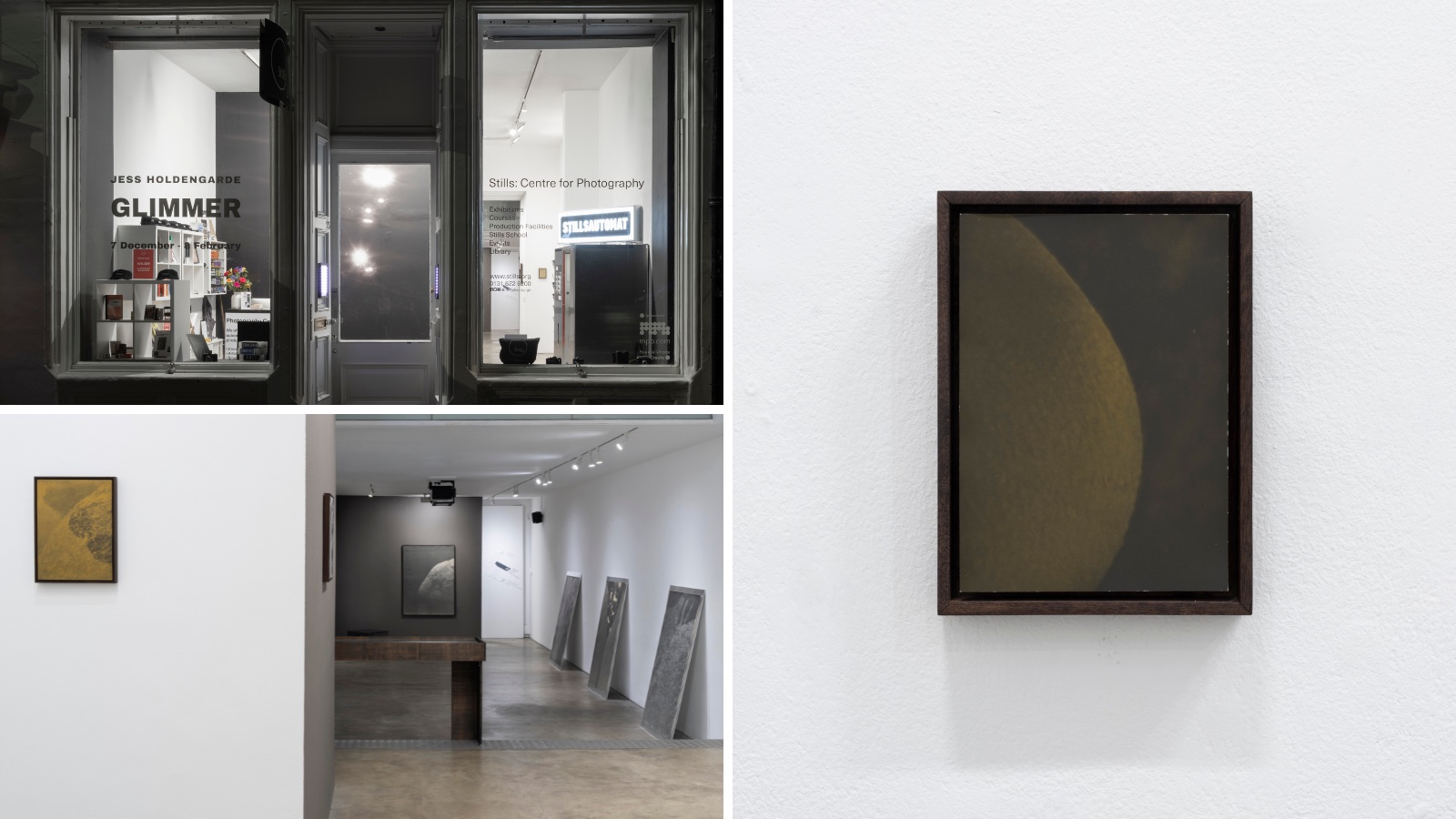
Image: Glimmer Credit: Jess Holdengarde & Stills Centre for Photography
Funding: Open Fund for Individuals
Jess Holdengarde is a lens-based artist from South Africa, now living and working between the Isle of Lewis and Glasgow. Through their practice, Jess explores the role of photography in the context of a crisis. Their work encompasses photography, writing, sound and moving image, all rooted in a commitment to sustainable processes.
In recently moving to the Isle of Lewis, Jess’ aim is to support the sustainability of their practice in a rural landscape, developing slow processes whilst continuing their international practice as a Scotland-based artist.
In a time marked by environmental, economic, and social crisis, Glimmer, Jess’ recent show at Stills is a new body of work that confronts the paralysis that is often associated with disillusionment. By developing a sustainable analogue photography practice, Jess is building an archive of refined recipes for plant-based developers and low-impact processes specific to Scotland and the UK. This builds on the photography, sustainability and climate crisis discussions hosted by Stills in 2023.
Foraging, recording and embedding themselves in surrounding landscapes are central to Jess’ creative process. The darkroom is approached as a site of alchemy and performance, where light, silver, and organic materials collide to produce images of transformation and suspension. Through the use of sustainable materials, their process embeds the physical landscape into the work itself.
The photographic works for Glimmer have been hand-developed and printed with plant-based developers – brewed from locally foraged materials such as wild thyme, yarrow, berries, heather and seaweed. Glimmer offers a space where the intersection of lens-based practice, the body, sound and sustainability become a site of resilience and hope - a glimmer of possibility amid uncertainty.
More information: Jess Holdengarde / Jess Holdengarde, Glimmer - Stills / @Jess_Holdengarde
Music Education Partnership Group | We Make Music Instrument Libraries
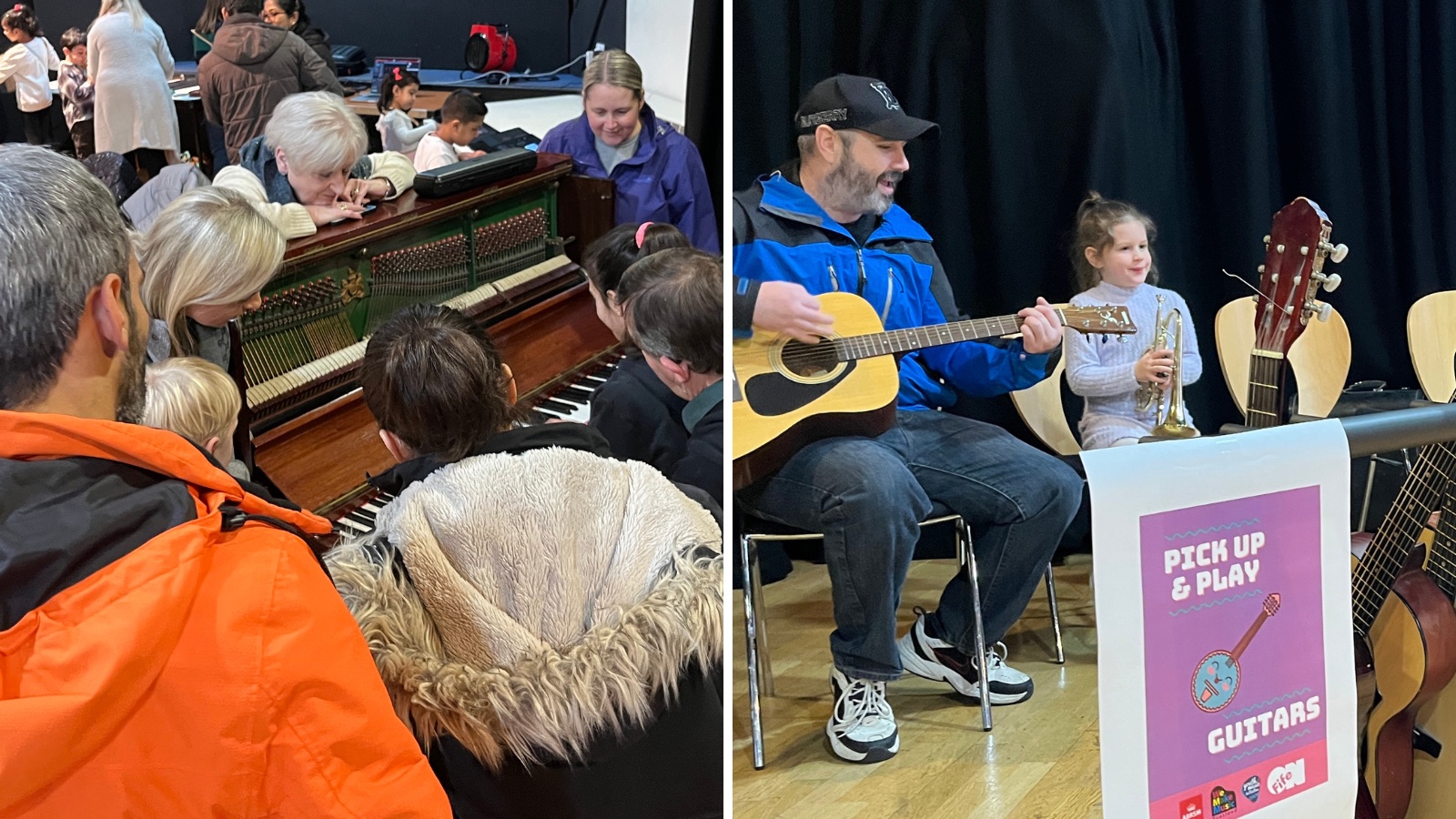
Image: We Make Music Credit: We Make Music Libraries
Funding: YMI Access to Music Making Fund
We Make Music Scotland is a programme led by the Music Education Partnership Group to get musical instruments into public libraries across Scotland, so that people can borrow an instrument for free, just like you would take out a book.
Launched in 2022, the initiative is spread to over 10 local authorities and 30 community libraries in Scotland, with more joining every month.
More information: We Make Music Instrument Libraries
Climavore | Bivalve Murals
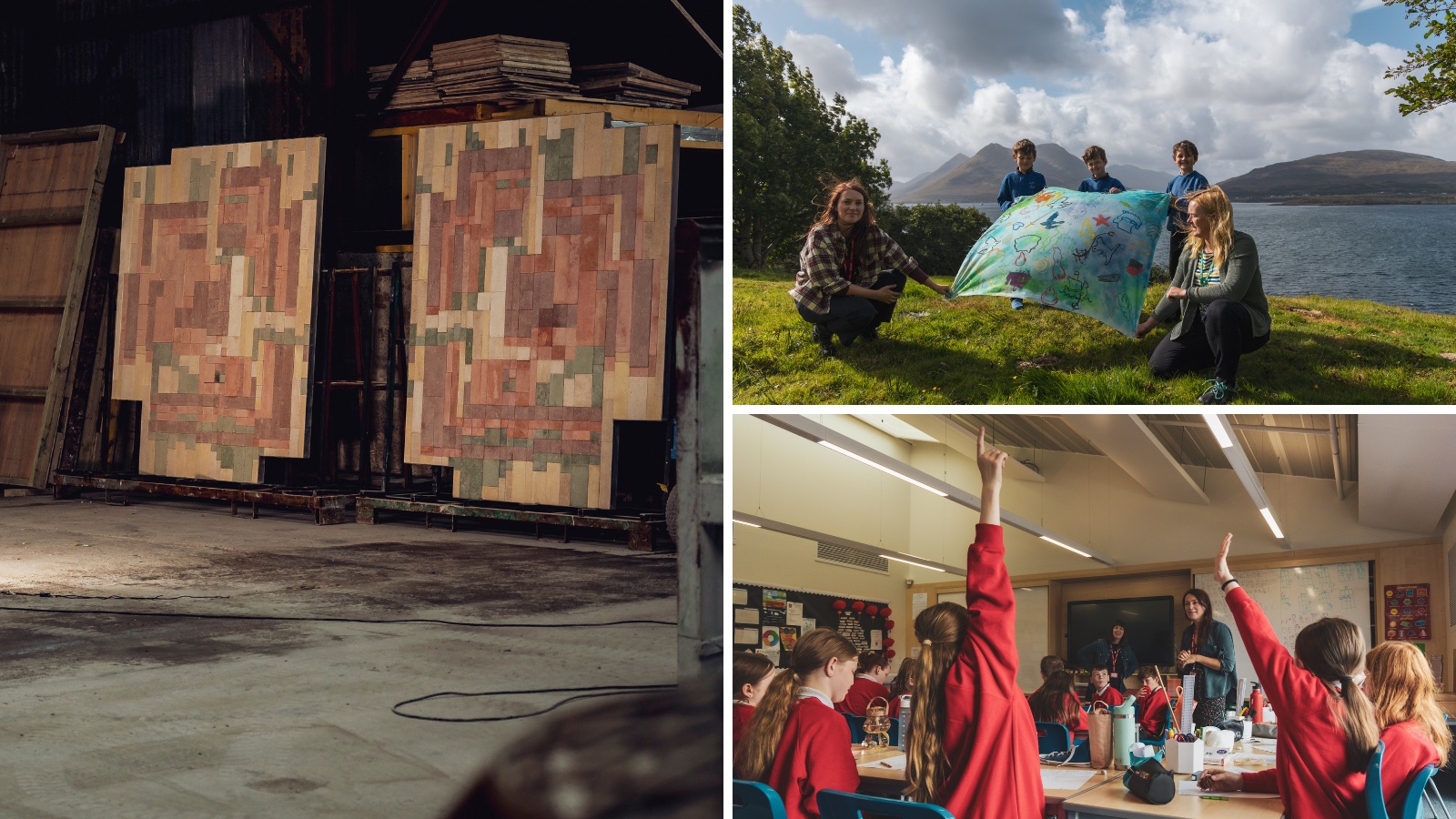
Image: Climavore Credit: Climavore
Funding: National Lottery Open Fund for Organisations
Since 2019, CLIMAVORE has been collecting waste shells from partner restaurants across Skye and turned them into new materials. Bivalve Murals has used these shells to create a series of artworks developed by Cooking Sections and the island communities of Skye and Raasay.
These artworks reduce the amount of waste to landfill and contribute to the development of regenerative economies and ecologies for the islands.
More information: Isle of Skye & Raasay | CLIMAVORE
Culture for Climate Scotland
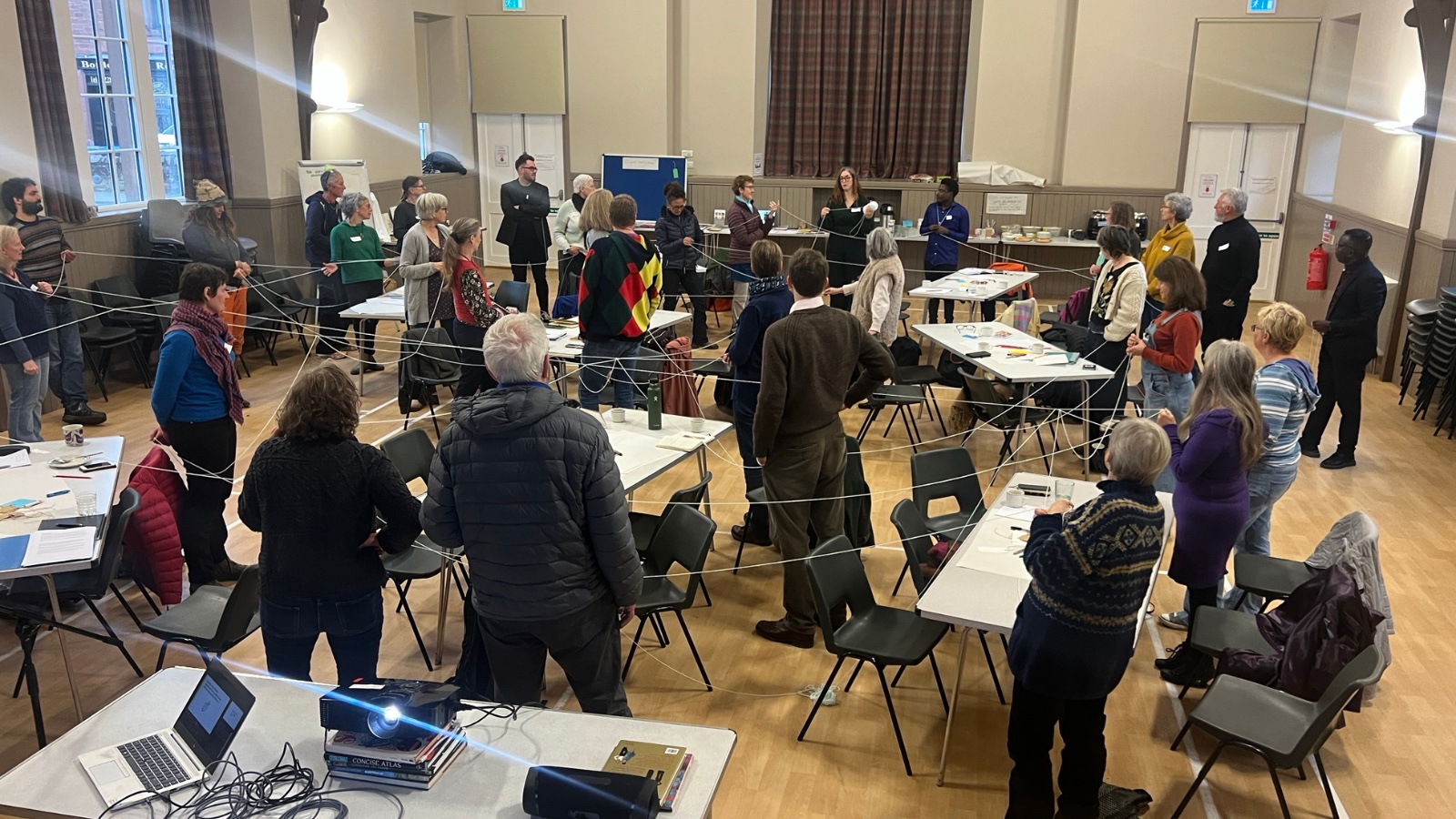
Credit: Culture for Climate Scotland
Culture for Climate Scotland believes the arts and culture sector is an essential agent of change in Scotland’s transformation into a zero-carbon, climate-ready and equitable society by 2045.
In January 2025, after 14 years, Creative Carbon Scotland changed its name to Culture for Climate Scotland (CCS) launching a new brand identity and low carbon, accessible website. As the organisation has been doing much more than the carbon management for which it was established in 2011, CCS’s expanded activities include an augmented environmental reporting programme, adaptation projects and introducing artists and creative practices into climate change work.
Transforming audience travel through art project concludes
The year began with the conclusion of a 12-month project with Perth Theatre and Concert Hall (PTCH), which was funded by Smarter Choices, Smarter Places (Paths for All’s programme to increase active and sustainable travel throughout Scotland).
The transforming audience travel through art project, which employed the expertise of an embedded artist, sought to address challenges around audience travel to and from venues, which is generally a large source of emissions for institutions like PTCH. The artist, Helen McCrorie, helped to design the project’s approach and ran a series of creative activities with participants that resulted in a variety of outputs. CCS gathered the results from workshops, staff days, displays, surveys, a film screening and even a flashmob choir performance on a local bus to produce a report of the project’s findings with four recommendations for potential actions. For more information, read the evaluation report.
Continuing events programmes
Throughout 2024/25, CCS continued to deliver Green Tease, a free events programme that began in 2013. Green Teases are informal, creative gatherings designed to build and support a network of people and organisations from the arts and culture and the climate change sectors. Six events took place with topics ranging from imagining a future just transition in Aberdeen to extractive and regenerative land use in Dumfries.
This programme is complemented by the SPRINGBOARD local assemblies for creative climate action, which are free networking events for people and organisations working in culture and climate from the same Scottish region, encouraging them to share knowledge and information, learn together and collaborate. Co-hosted in person by culture and climate organisations, each assembly is individually designed for its location.
Progressing the Green Arts Charter
In December 2024, 12 months after launching the Green Arts Charter, CCS published a report summarising the progress of 65 signatories and identifying where further support is needed for Scottish cultural organisations to succeed in their sustainability journeys. CCS created the charter, which includes four pledges and a framework of actions, as a unifying tool for the Green Arts Initiative, a network of around 500 cultural organisations across Scotland.
SPRINGBOARD 2025
The year culminated with SPRINGBOARD 2025, a two-day online event focused on transformational change. With more than 60 speakers and 200+ attendees, this event focused on how all of society needs to reimagine itself in the face of the climate change we are experiencing, and how the arts and cultural sector, as well as working on its own transformation, can contribute to the transformation of wider society.